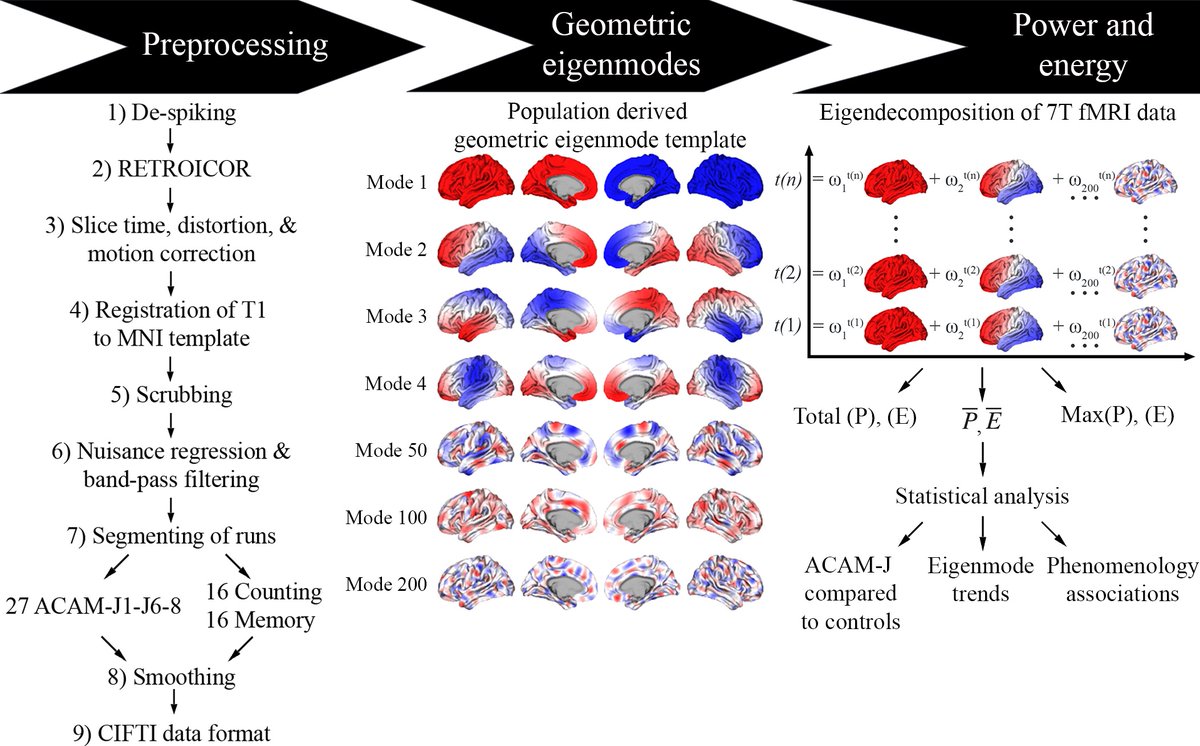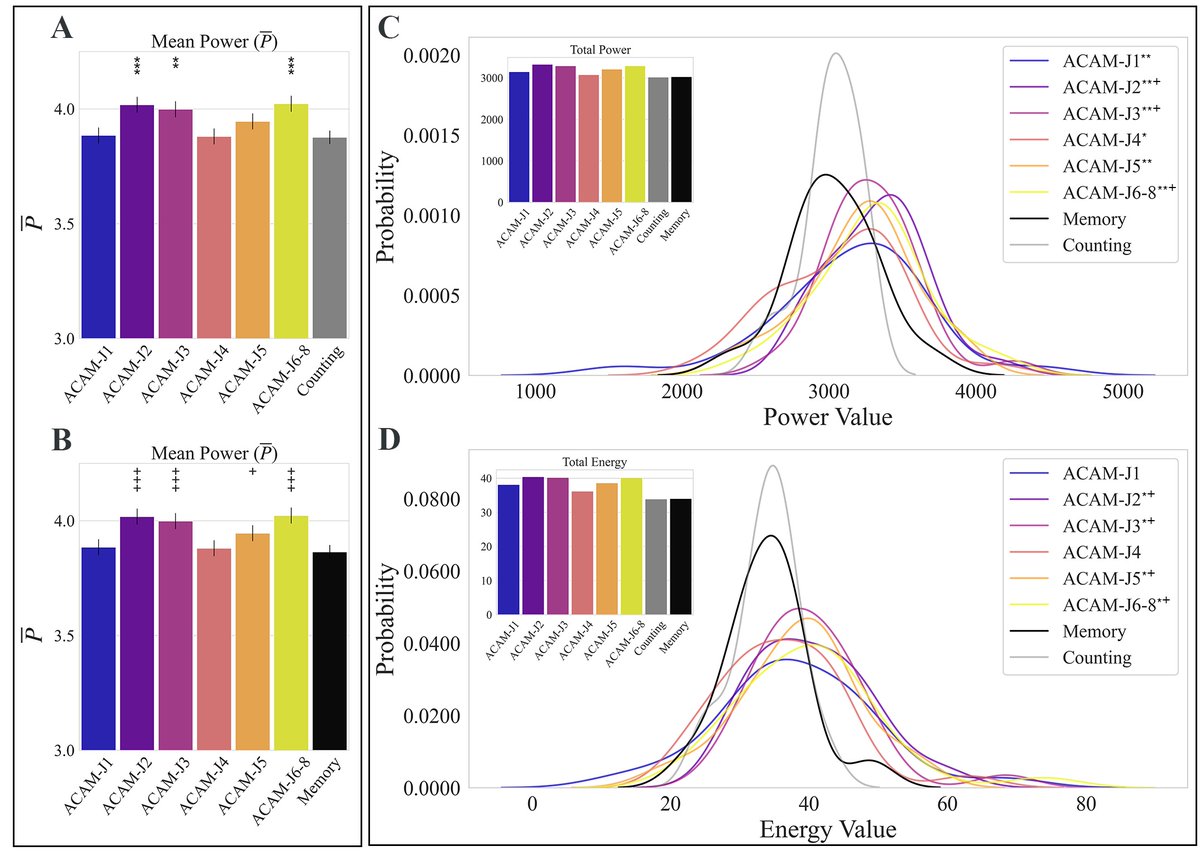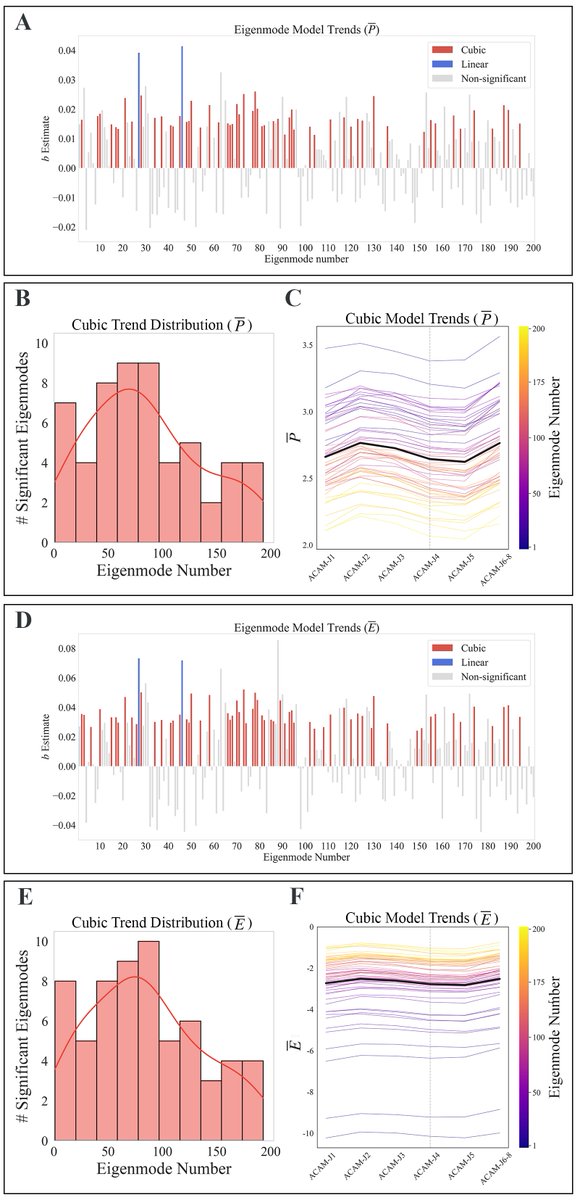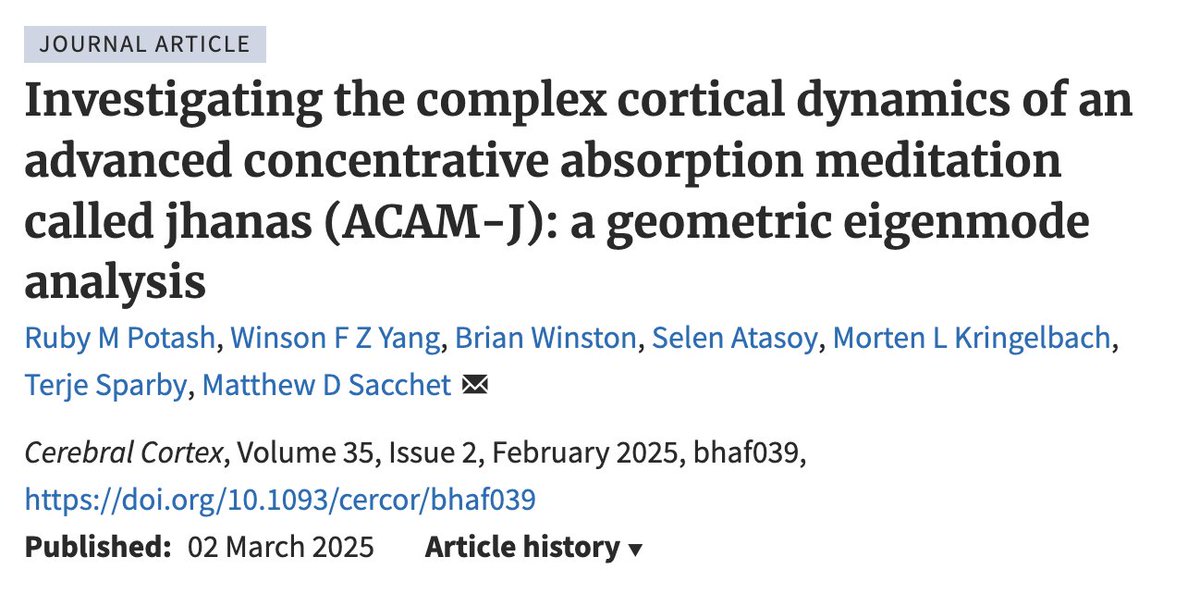
Matthew D. Sacchet
@MatthewSacchet
Associate Professor and Director of the Meditation Research Program at Harvard Medical School / Mass General (MGH) @HarvardMed @MGHPsychiatry @MGHMartinos
Meditation research is entering its most daring phase yet. The first wave focused on the benefits of meditation. The second wave brought greater methodological rigor and began exploring the mechanisms behind those benefits. Now, the third wave shifts the spotlight to largely…
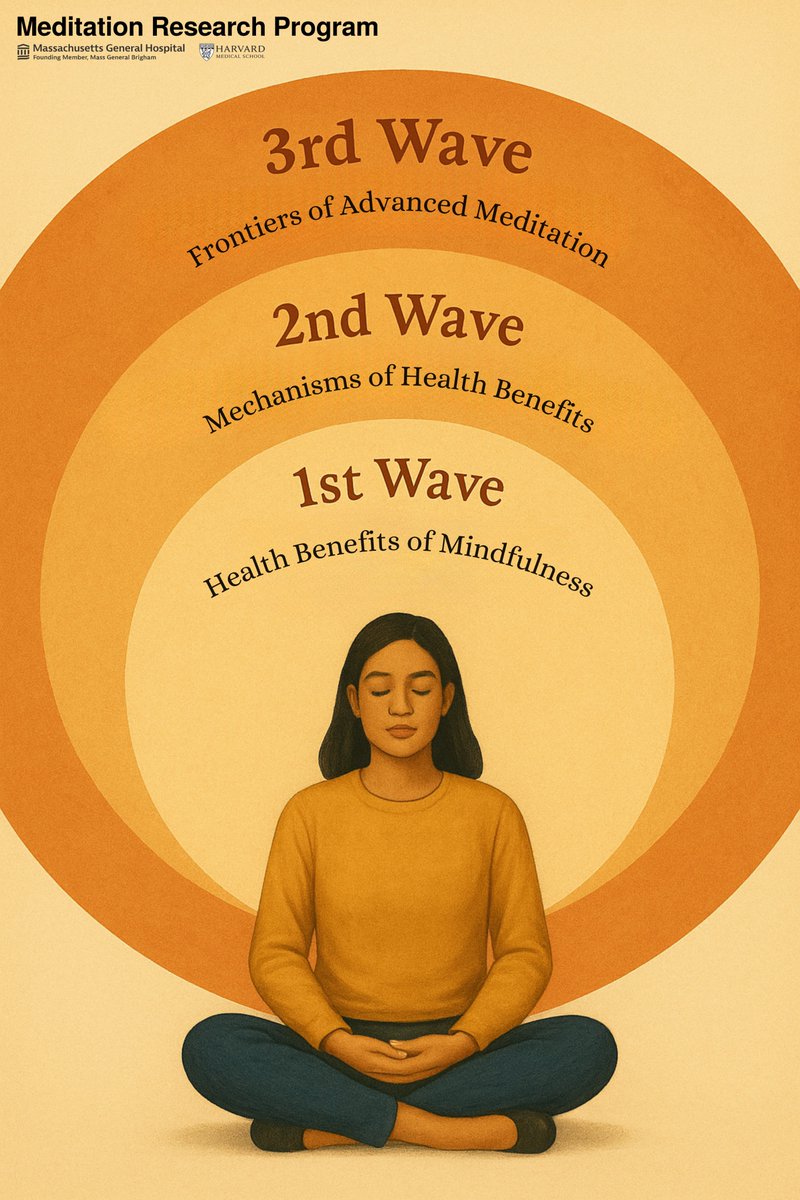
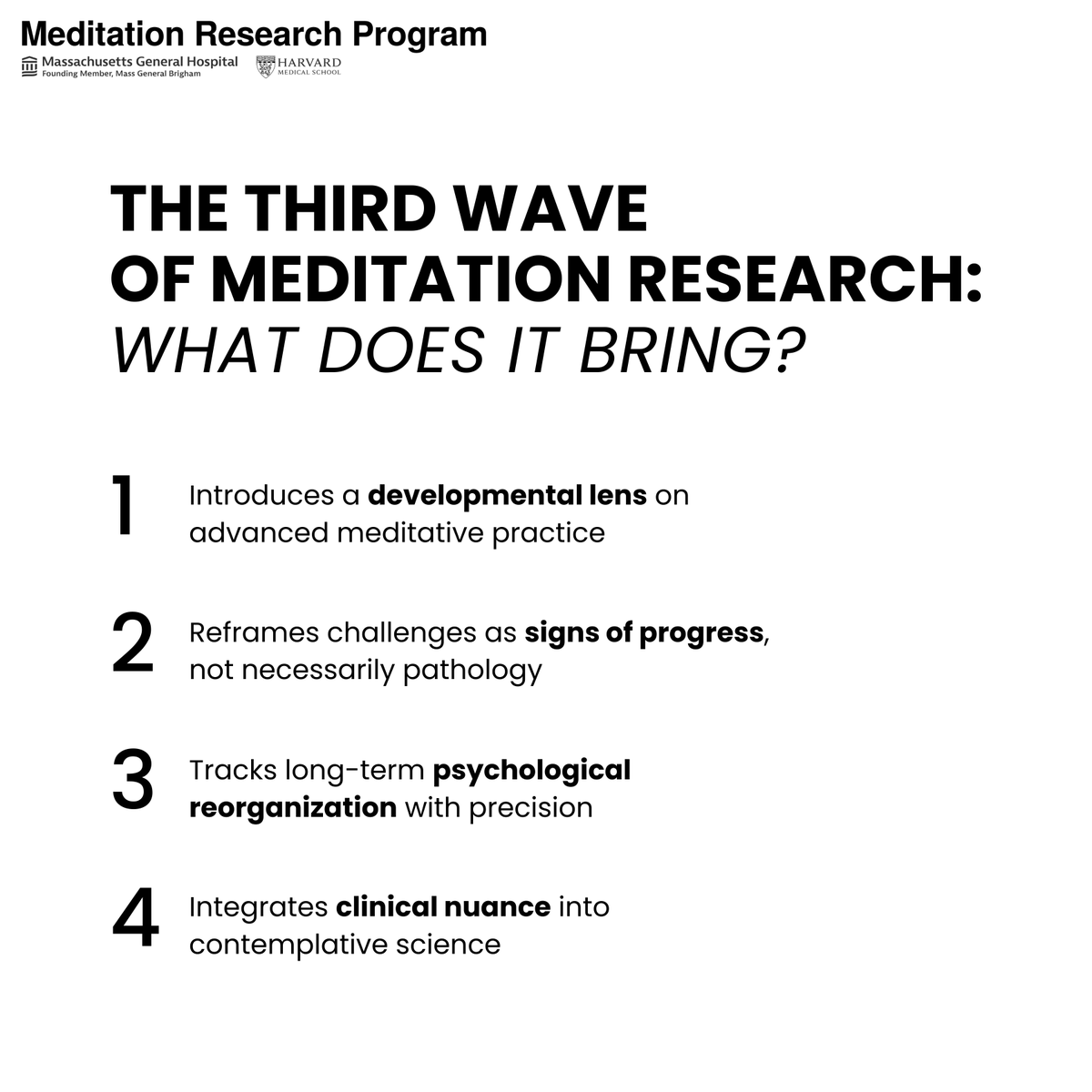
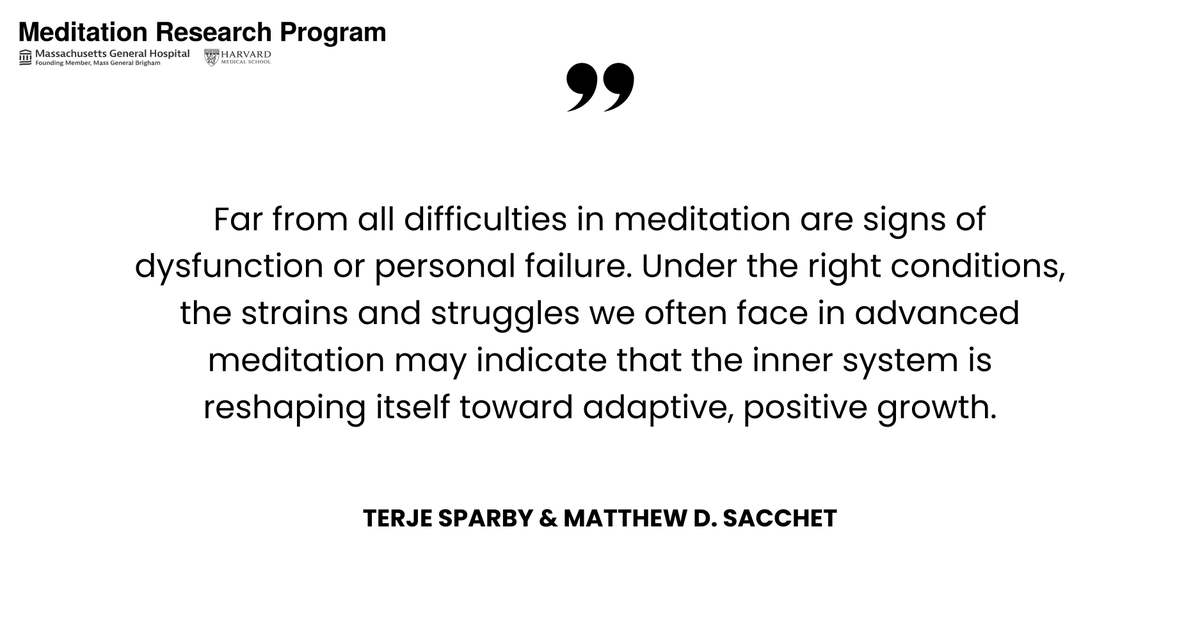
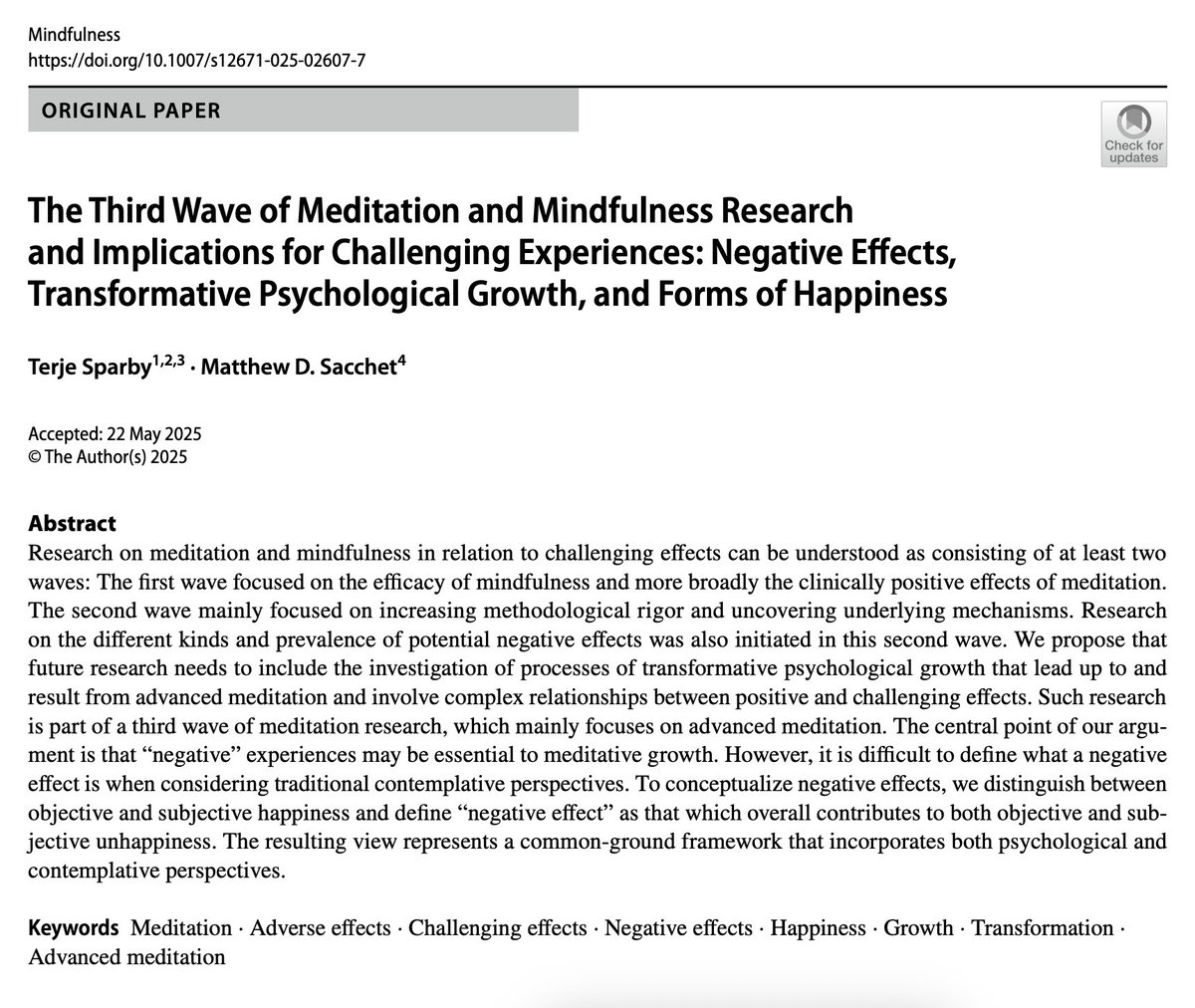
Describe an experience of derealization to a Western clinician, and you may receive a psychiatric diagnosis—and strong medication. Describe the same experience to a seasoned meditation teacher, and you may be congratulated. In their eyes, you might be waking up! So, who’s…
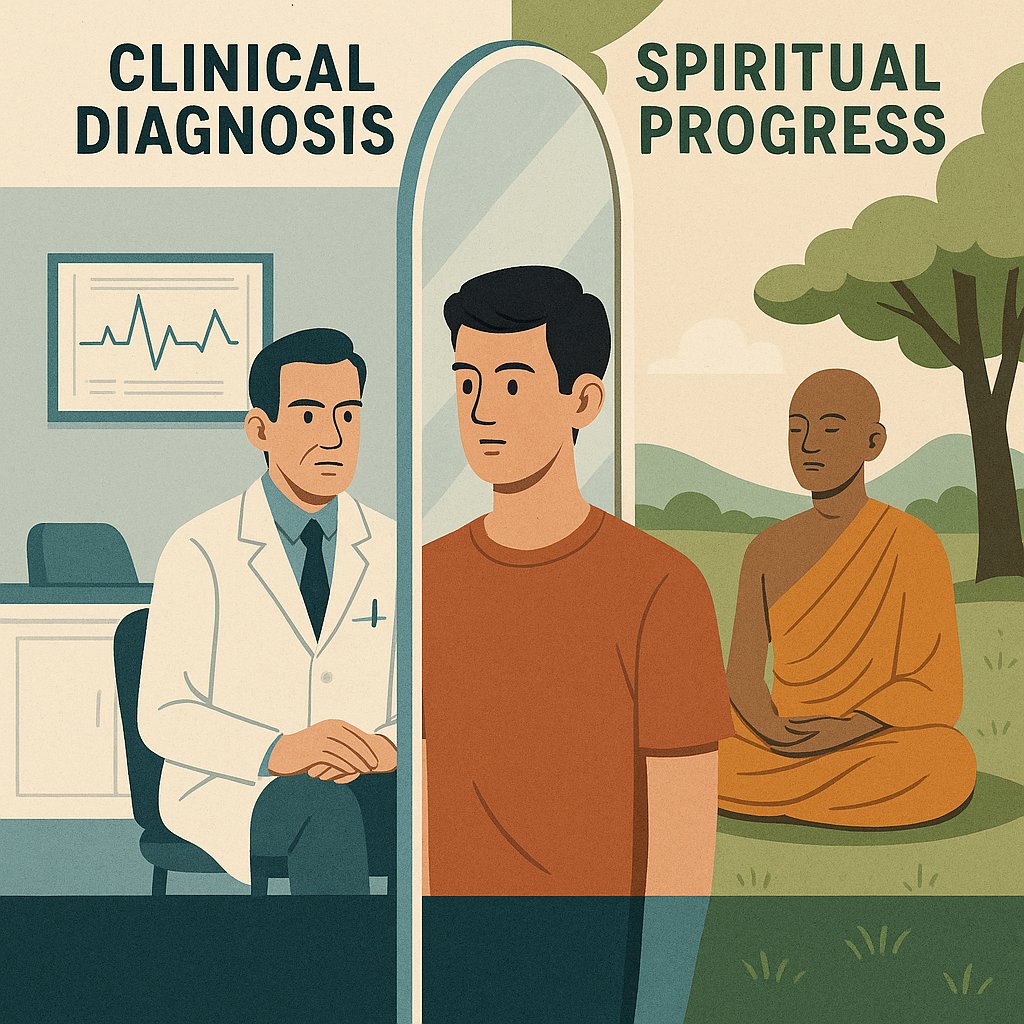
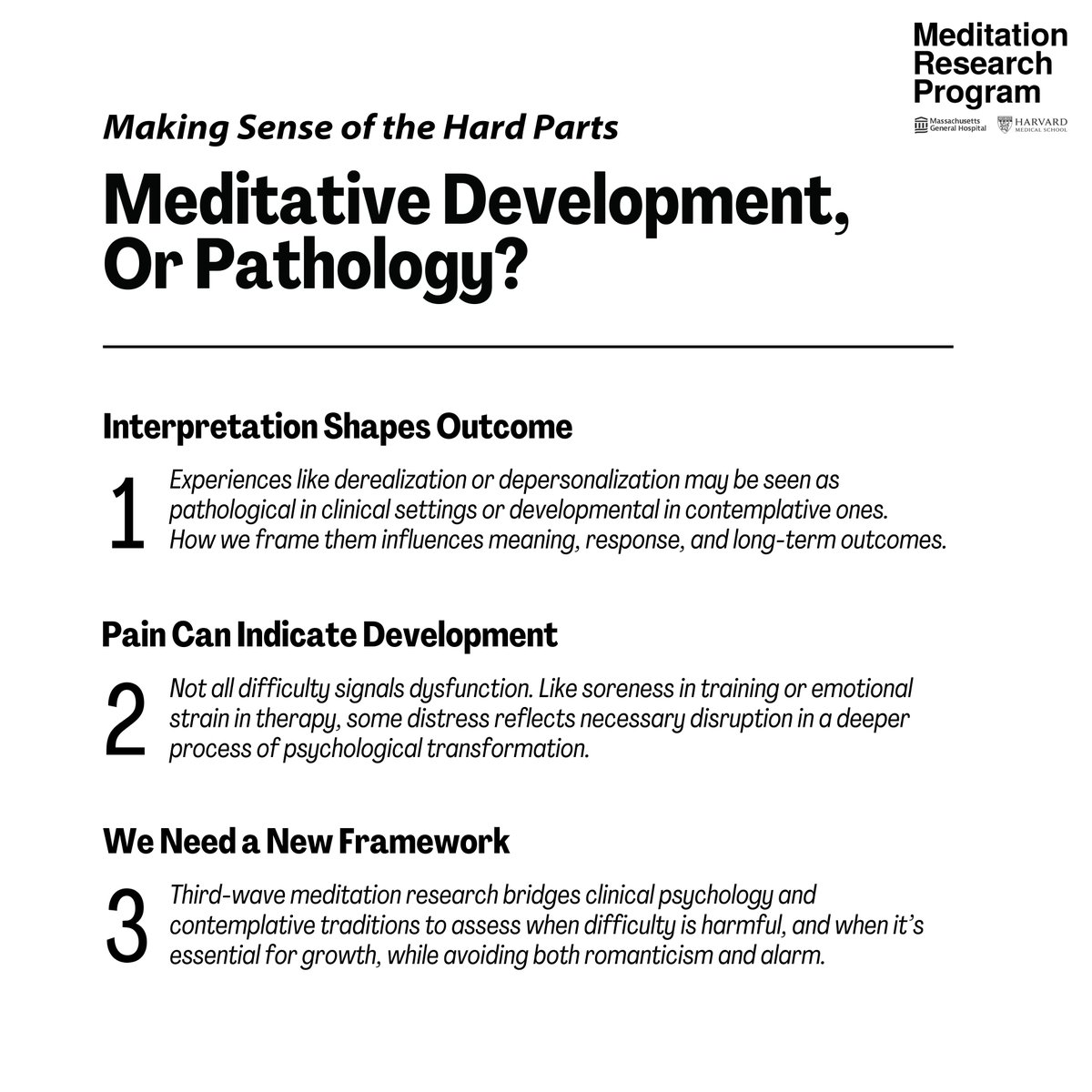
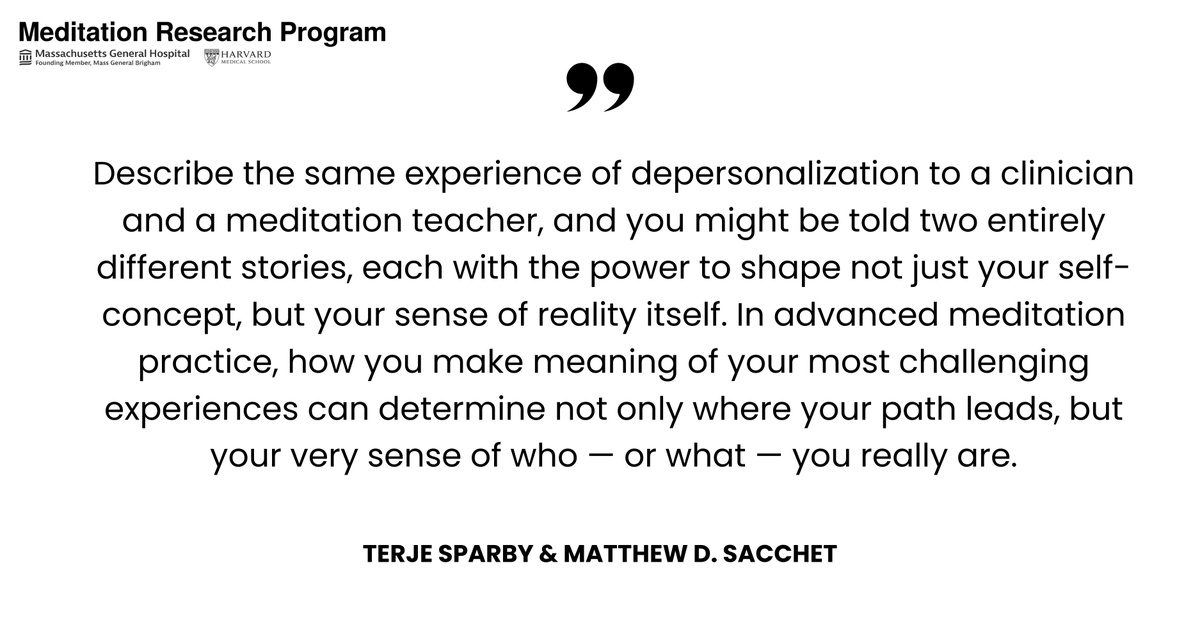
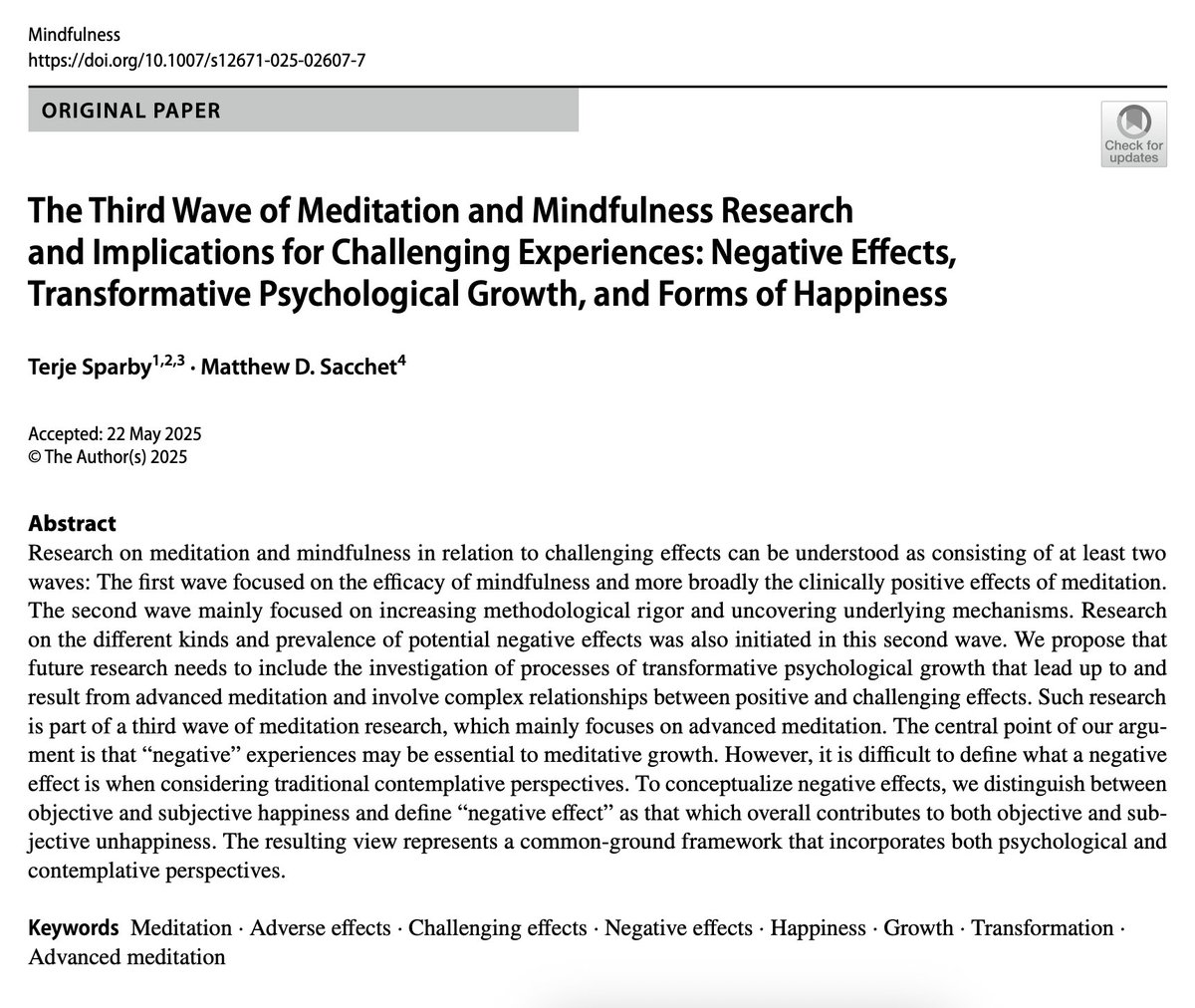
What happens when meditation turns your world inside out? Recently, I had the pleasure of speaking with the Harvard Gazette about an often-overlooked aspect of meditation: the high prevalence of meditation-related altered states of consciousness—and the fact that, for many,…

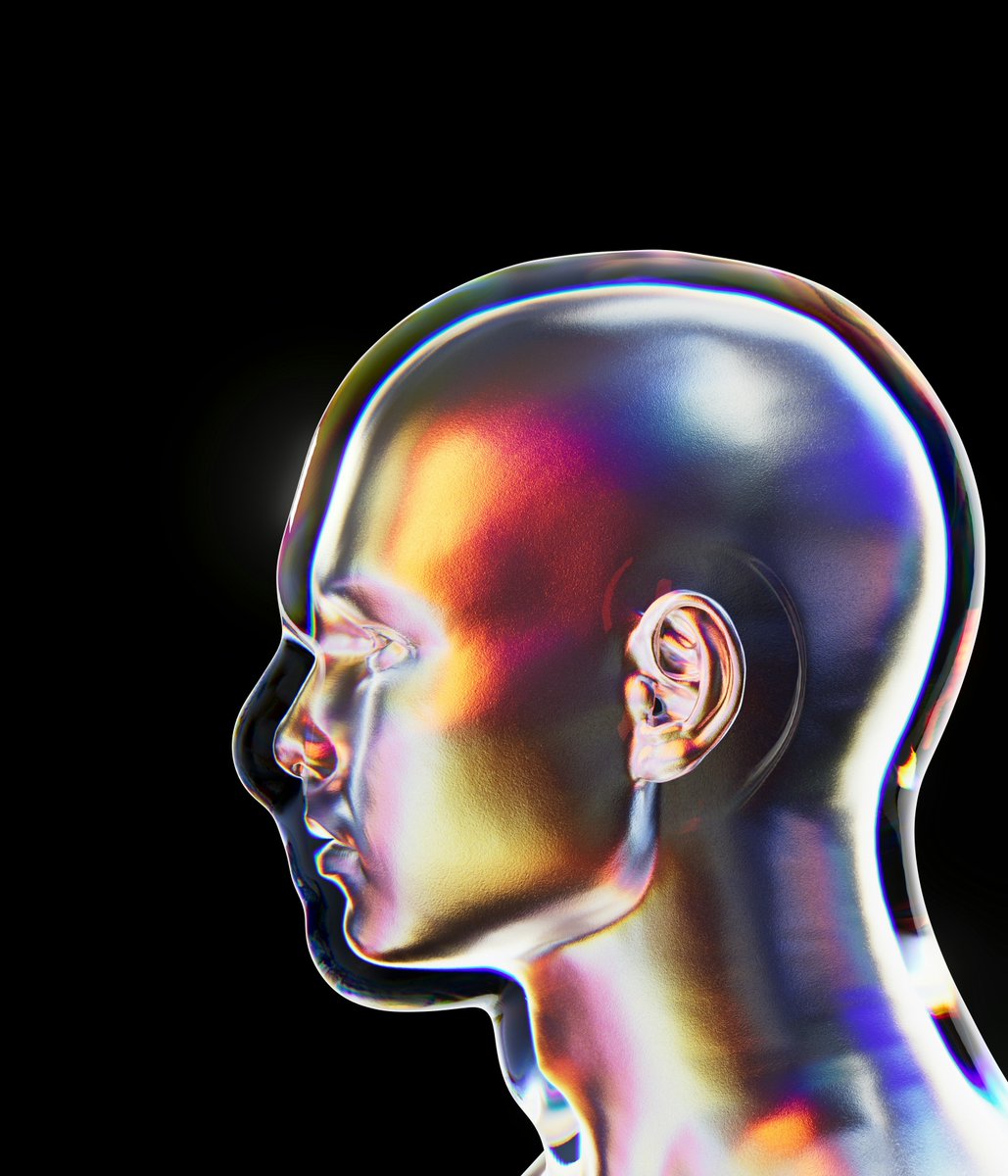
Announcing our new preprint on the neuroscience of cessation events as informed by brain criticality The manuscript is titled: “Brain Criticality and Advanced Meditation ‘Cessation’ Events: An Intensively Sampled Electroencephalography Case Study” In this intensively sampled…
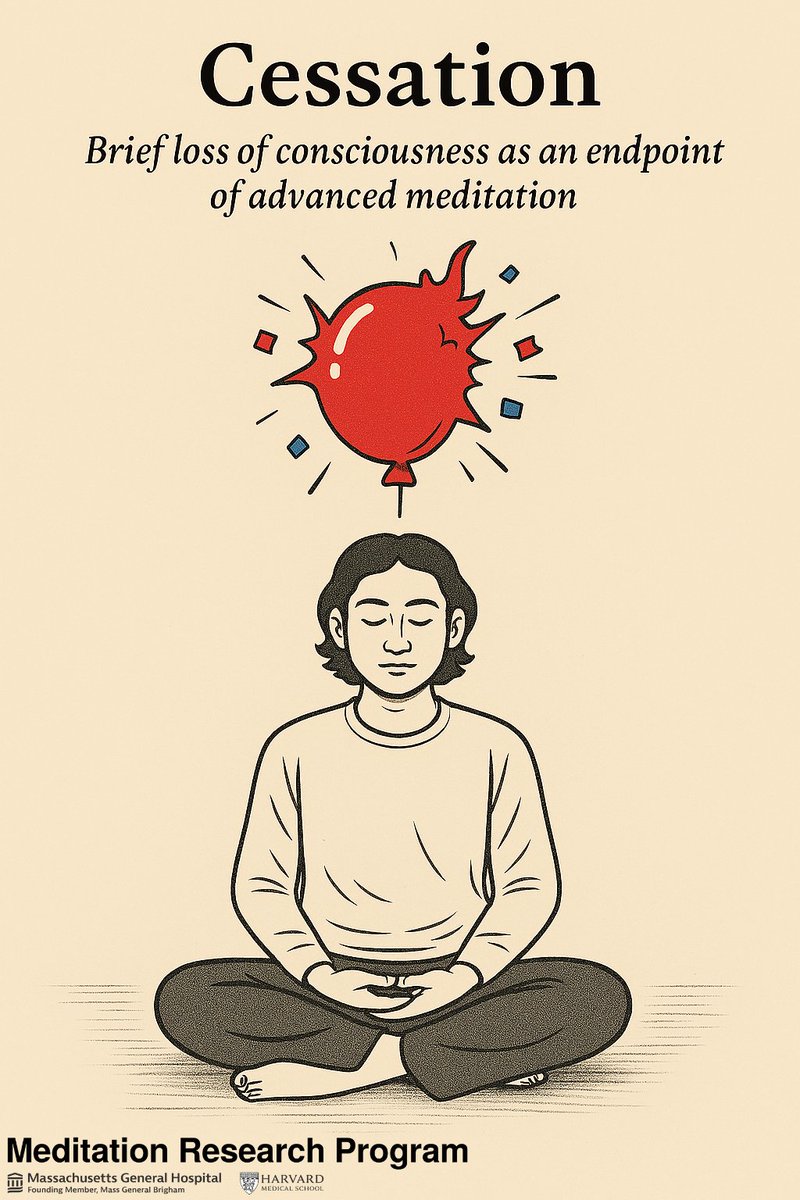
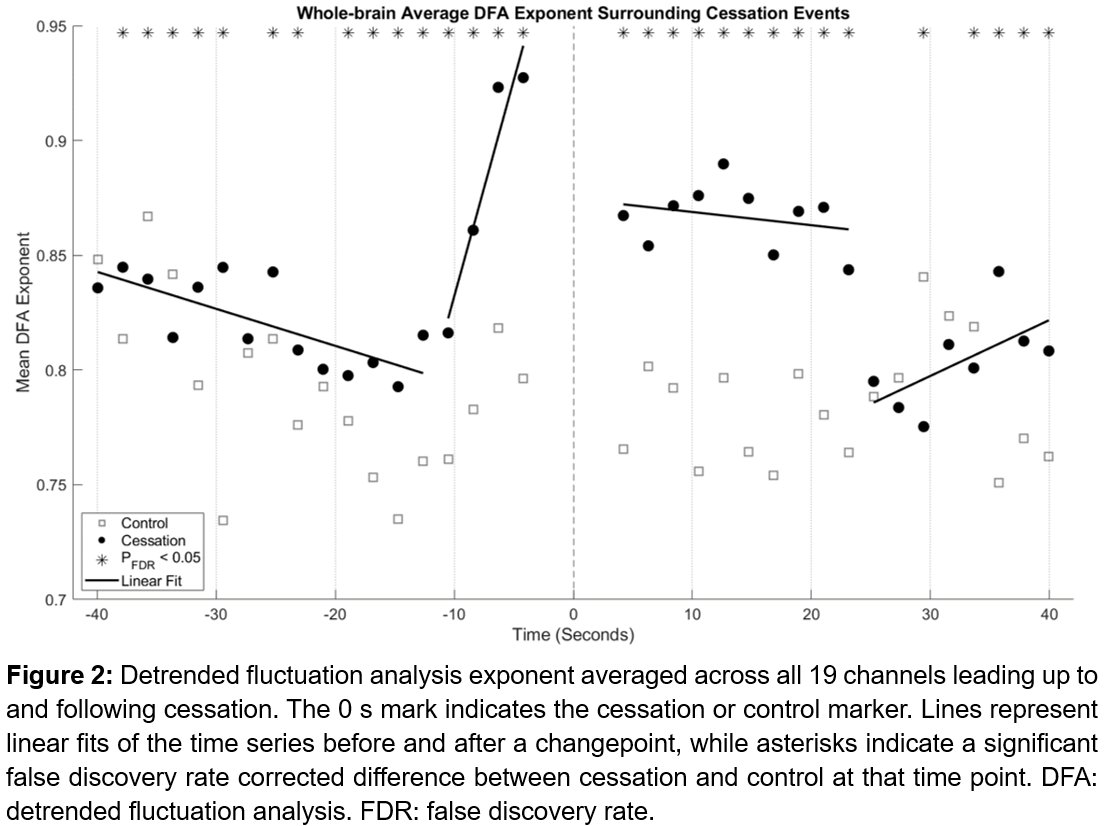
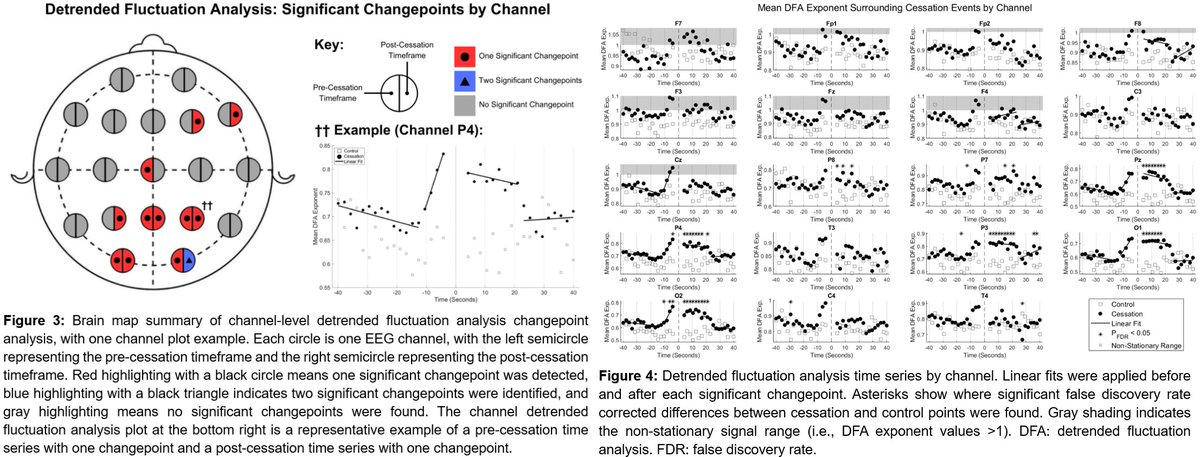

How can lived experience be mathematically formalized, and what might computational models reveal about the depths of consciousness during advanced meditation? As research on advanced meditation enters a new era, a powerful question emerges: Can we mathematically model…

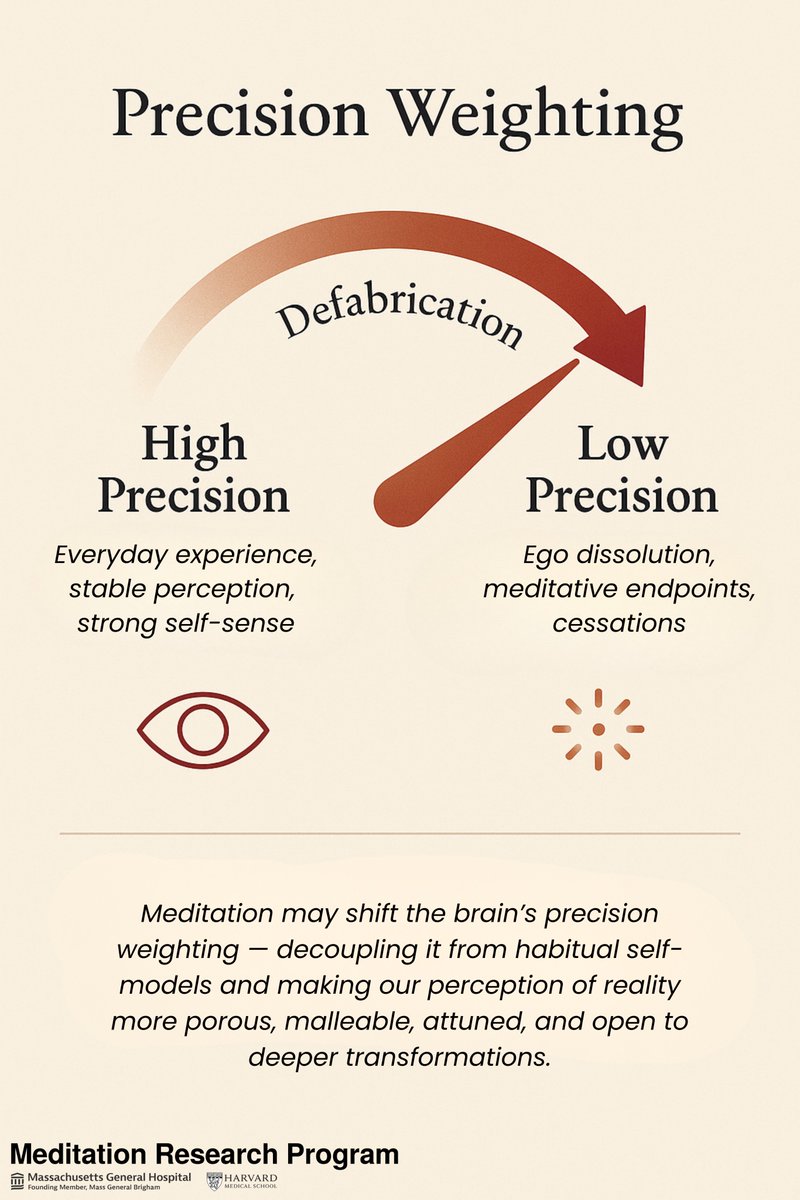
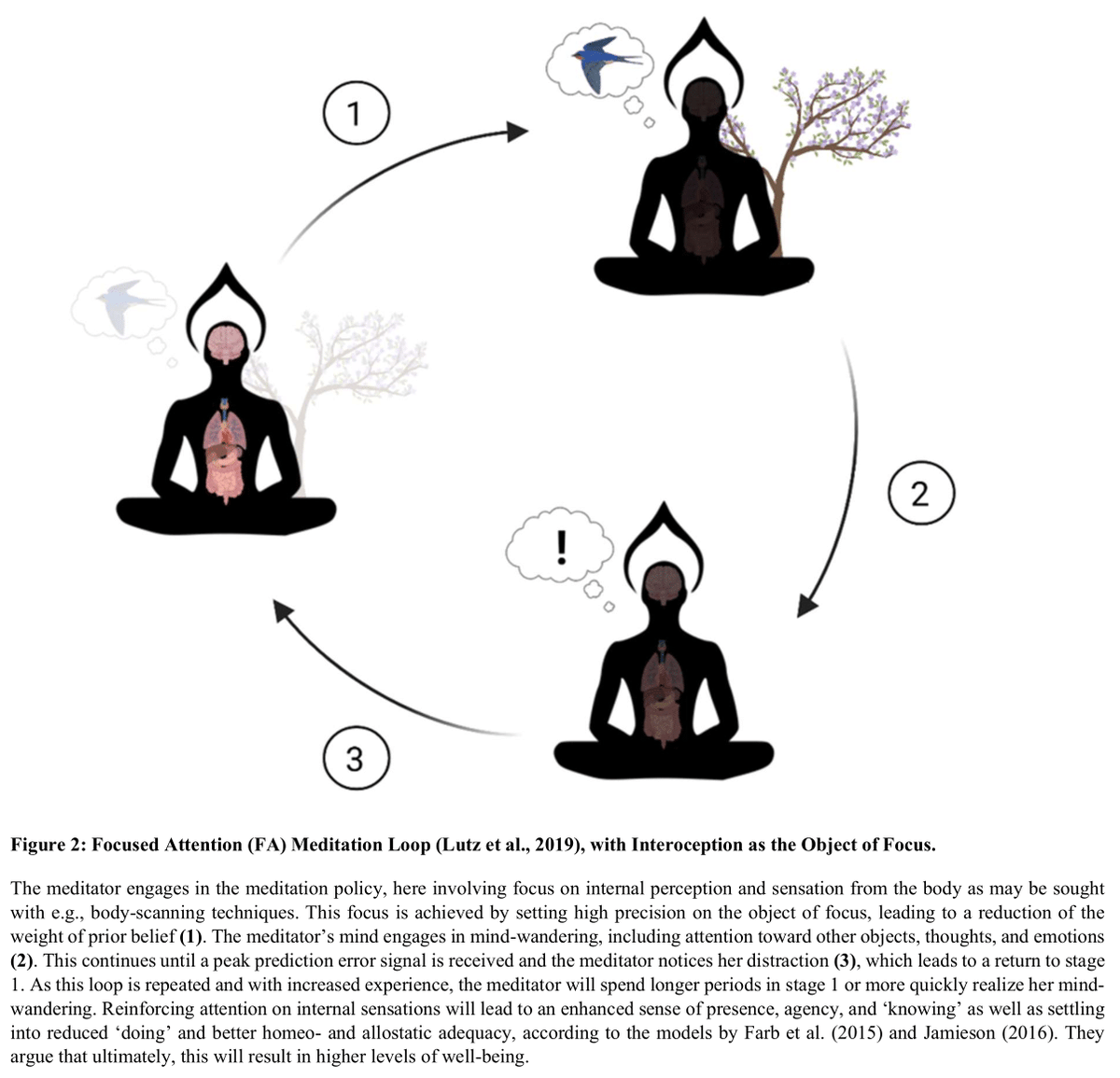
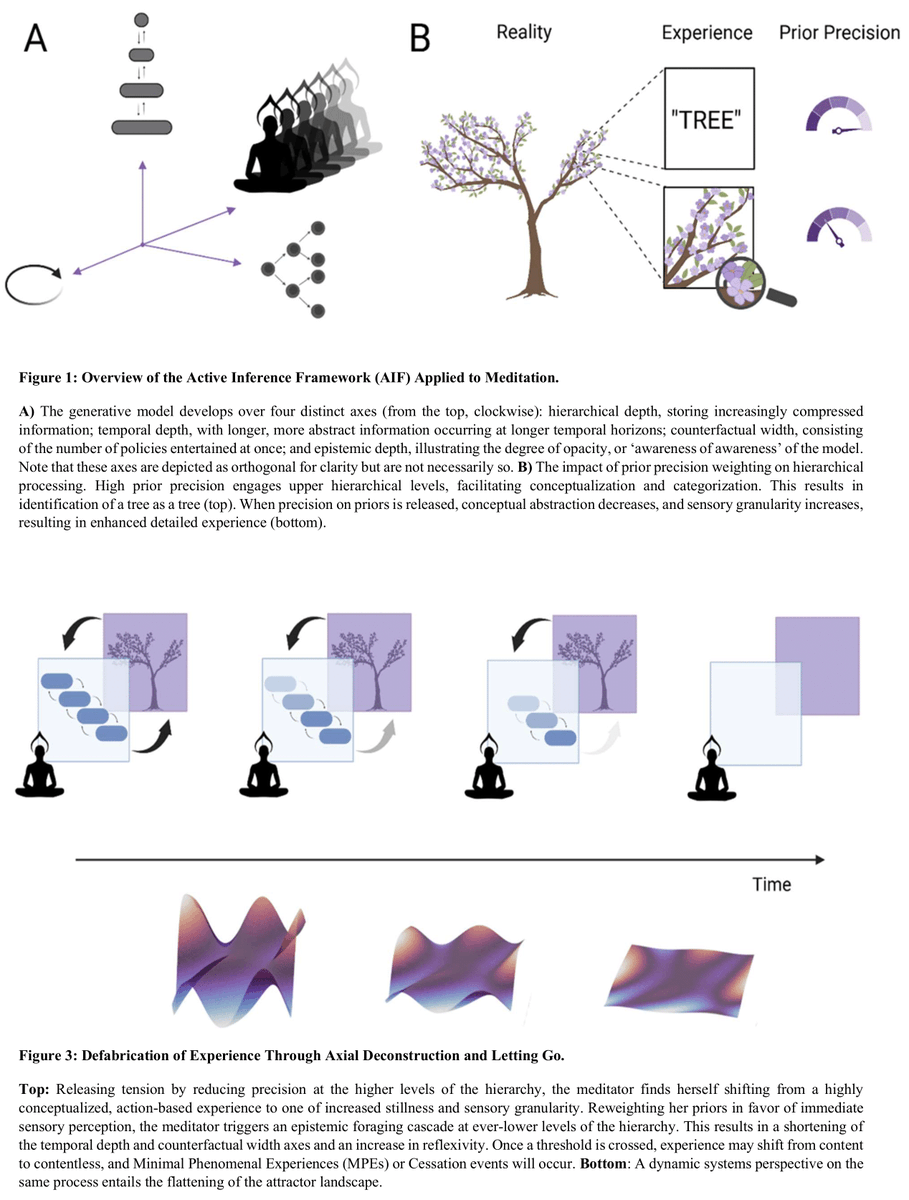
What does neuroscience really know about focused attention meditation? And what’s next? Focused attention meditation (FA) is a class of practice involving intentionally directing attention to a single object, such as the breath or bodily sensations, while consistently bringing…
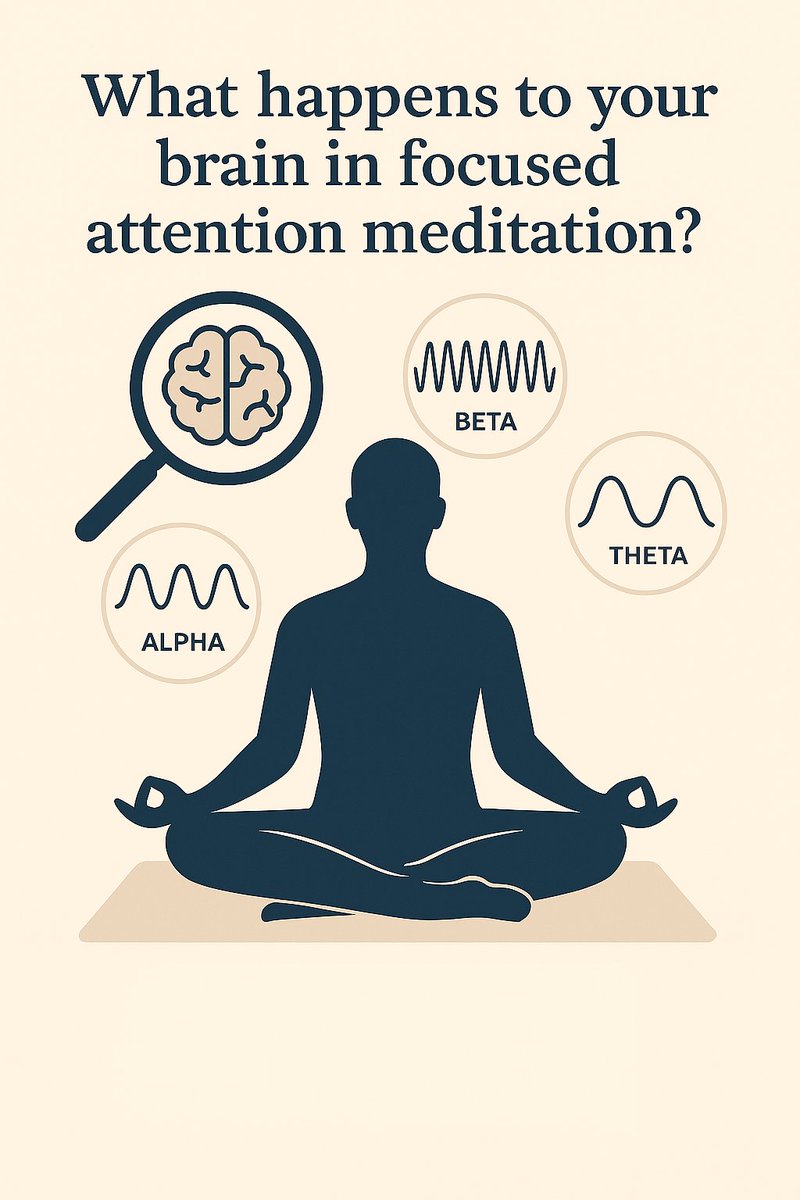
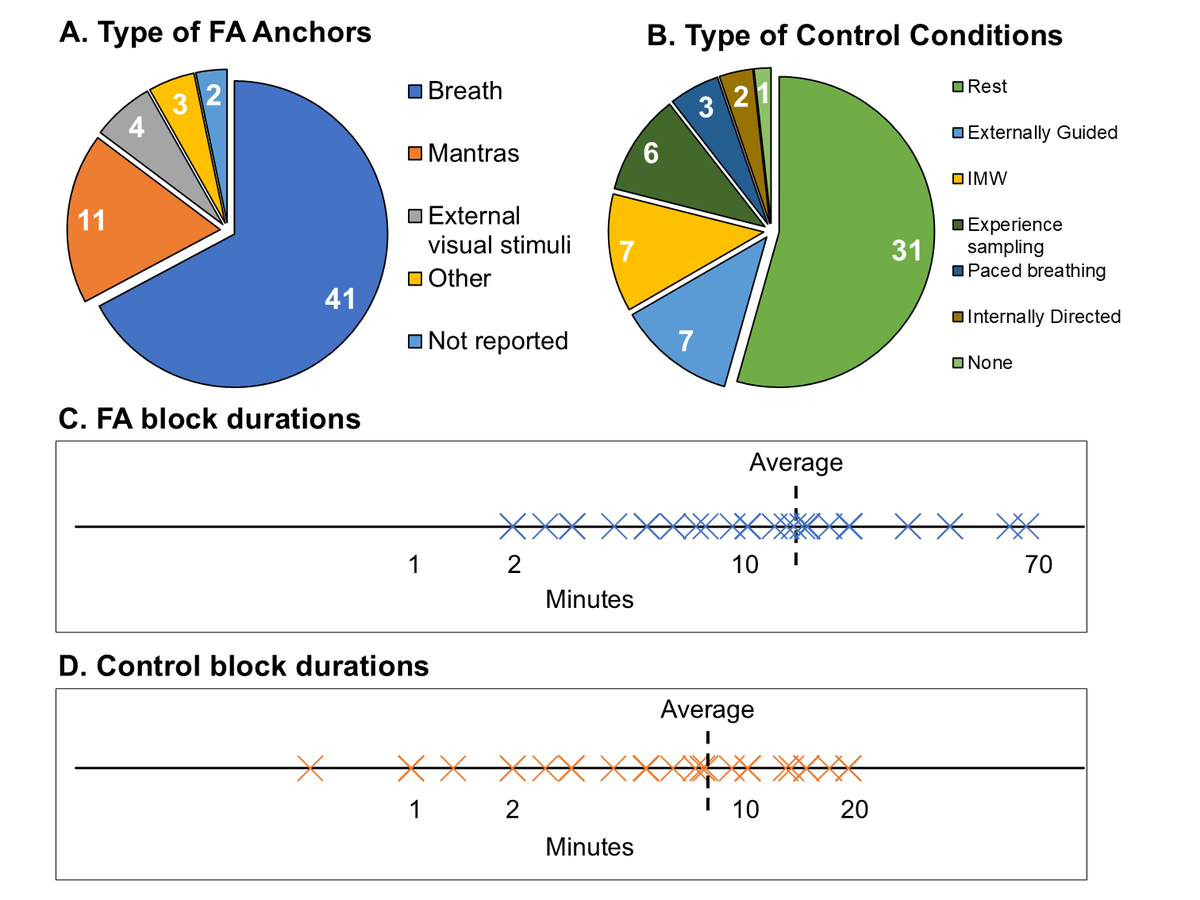
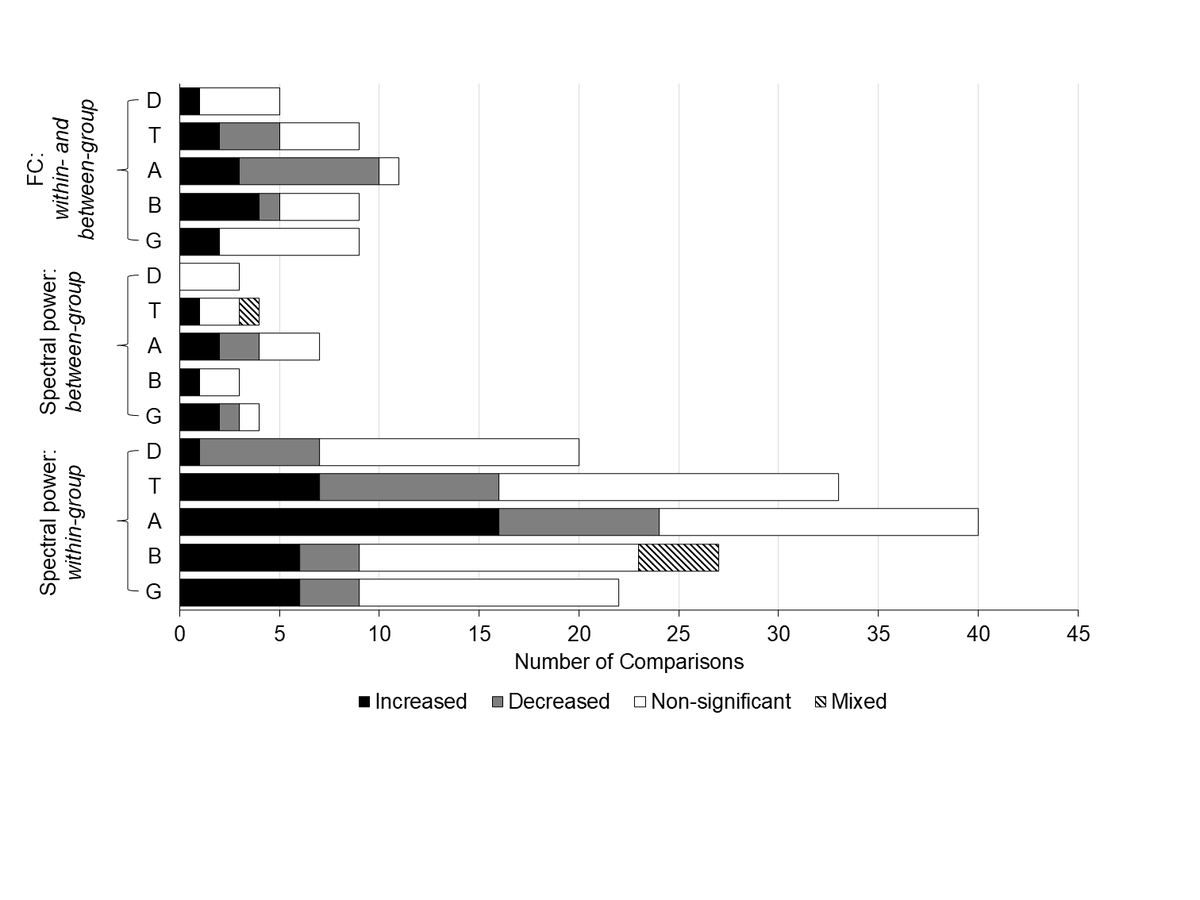
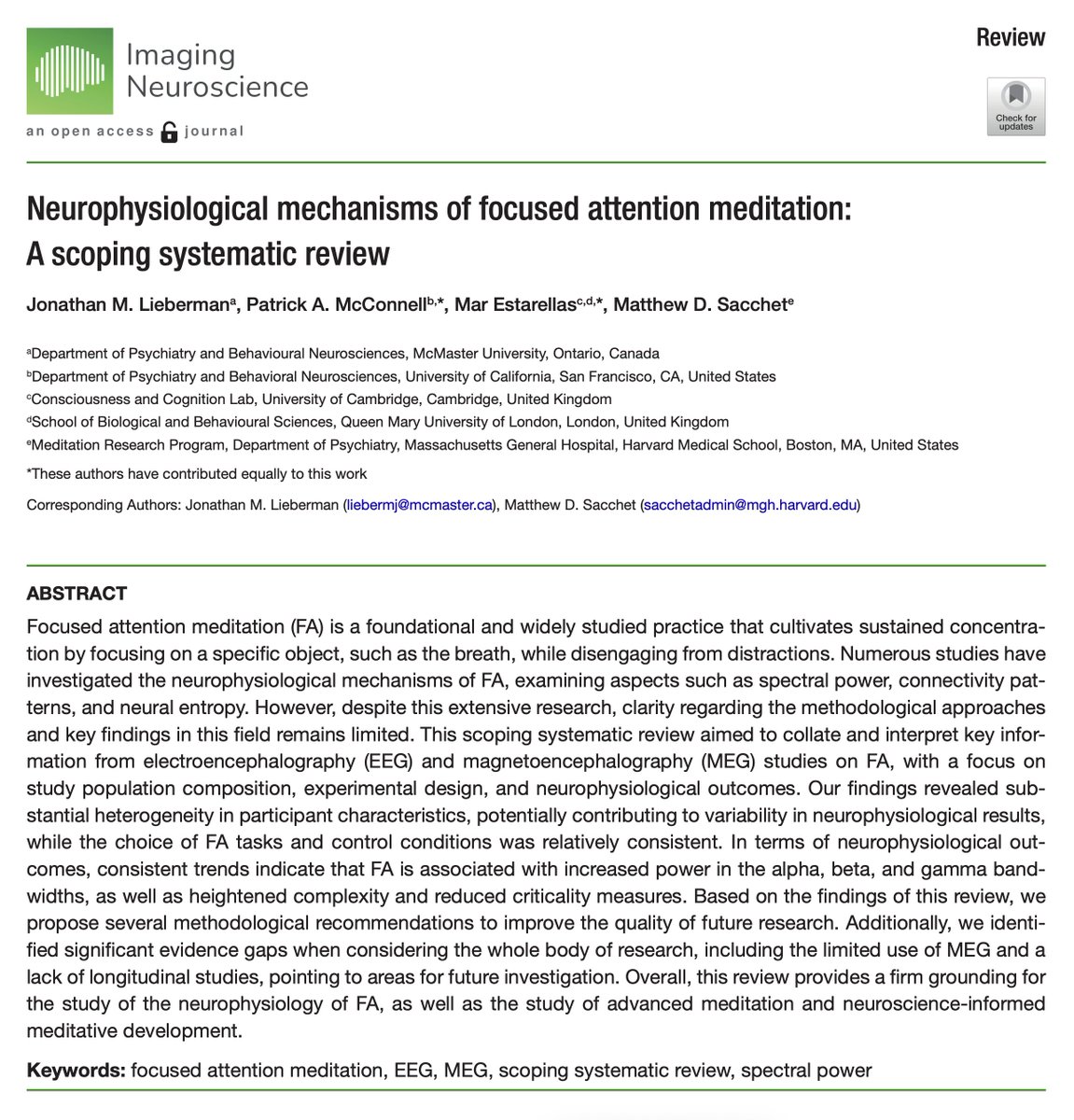
Does brain stimulation increase levels of mindfulness in PTSD? Our new study, published in Frontiers in Psychiatry, offers preliminary evidence that repeated transcranial magnetic stimulation (rTMS) can enhance dispositional (trait) mindfulness in individuals with post-traumatic…

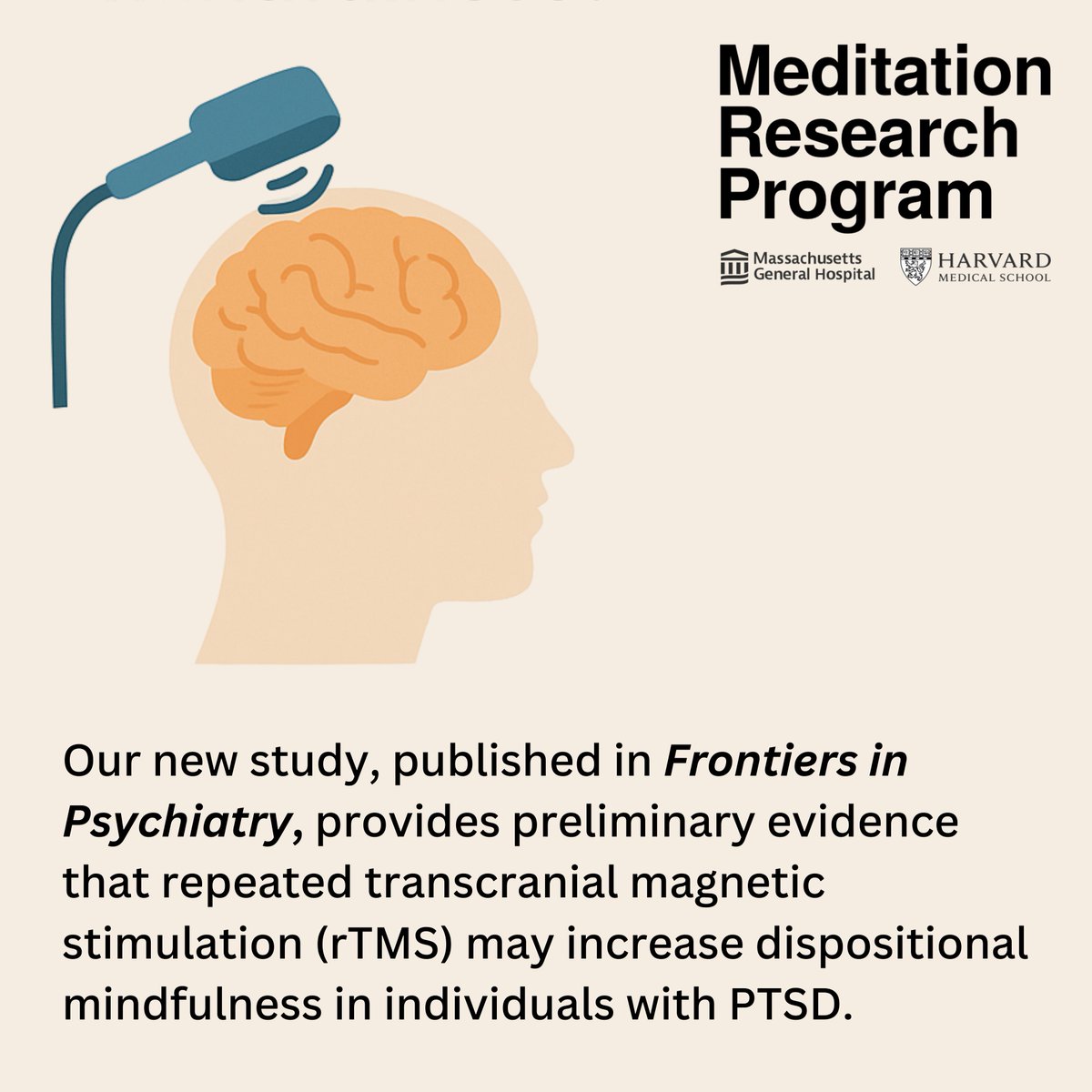

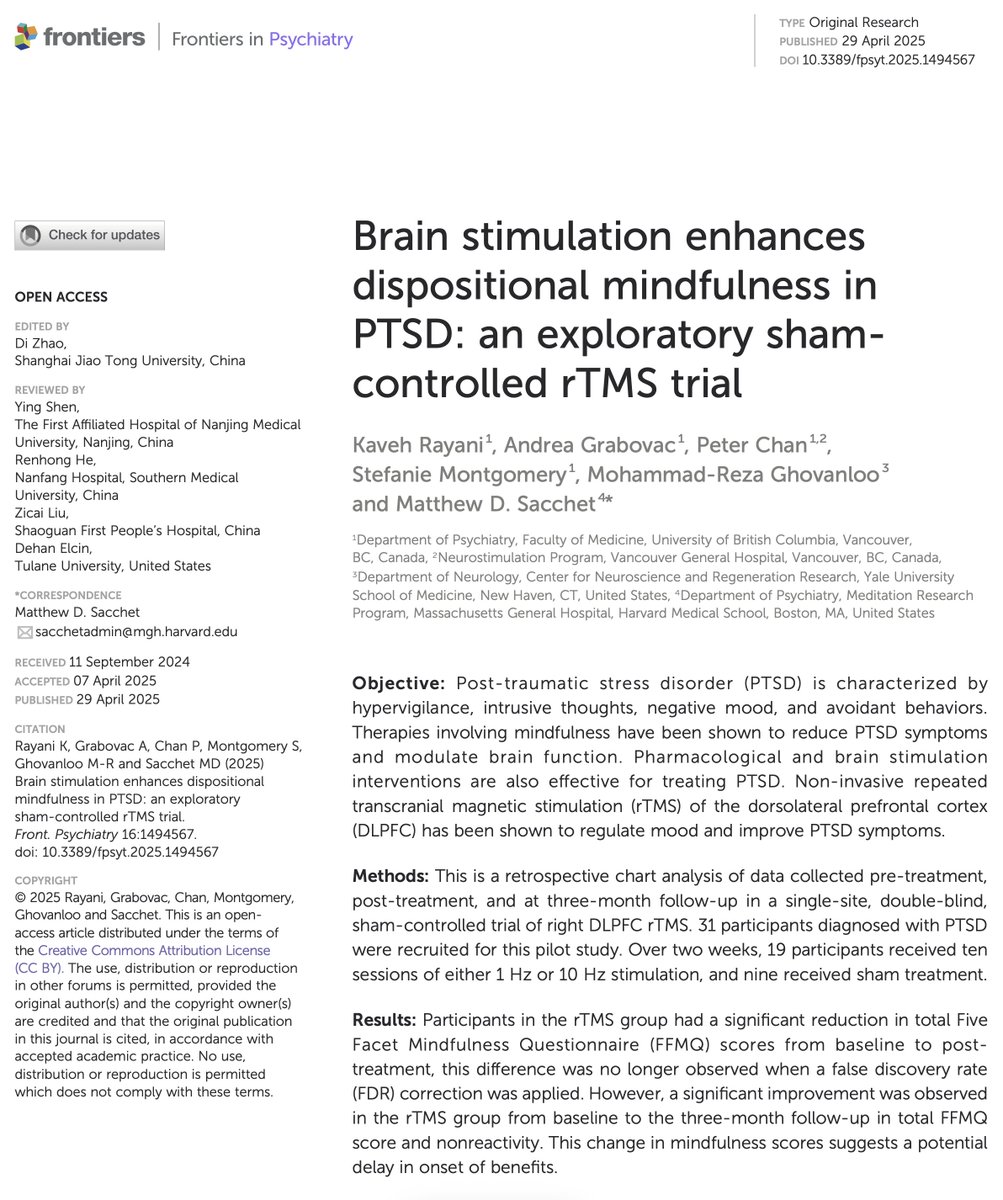
How does meditation affect our nervous system, especially after years of practice? What we often label as “mindfulness stress relief” barely captures the full physiological complexity of long-term meditation practice. In our new review in Neuroscience & Biobehavioral Reviews…
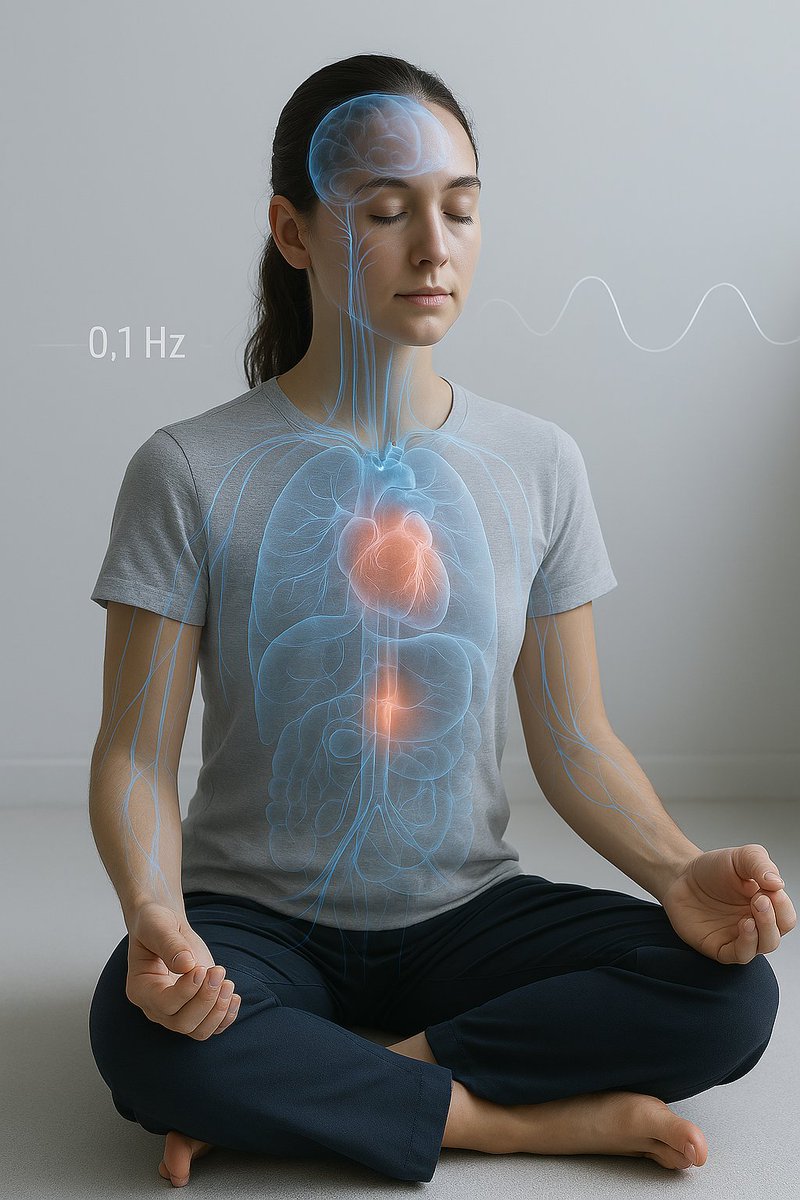
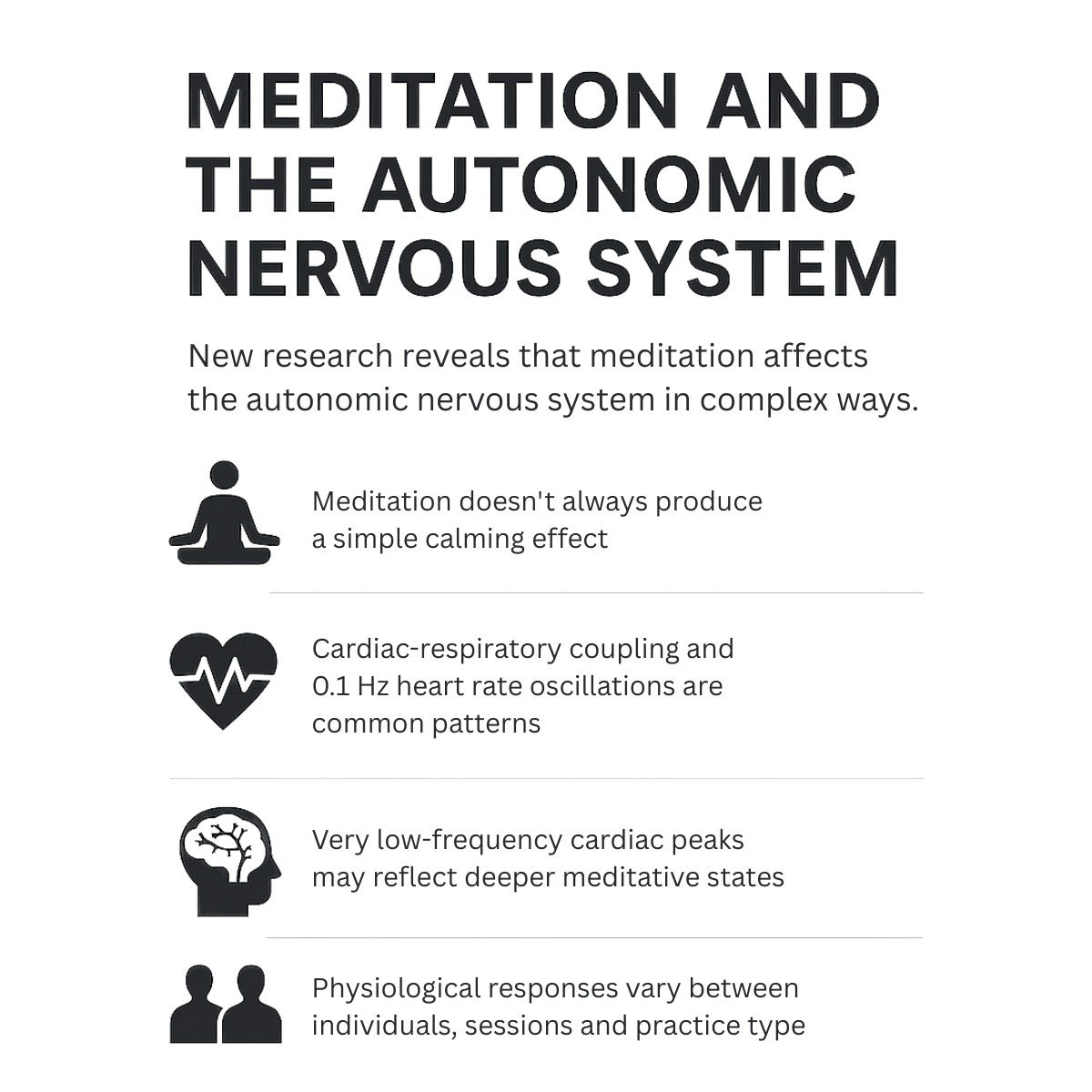
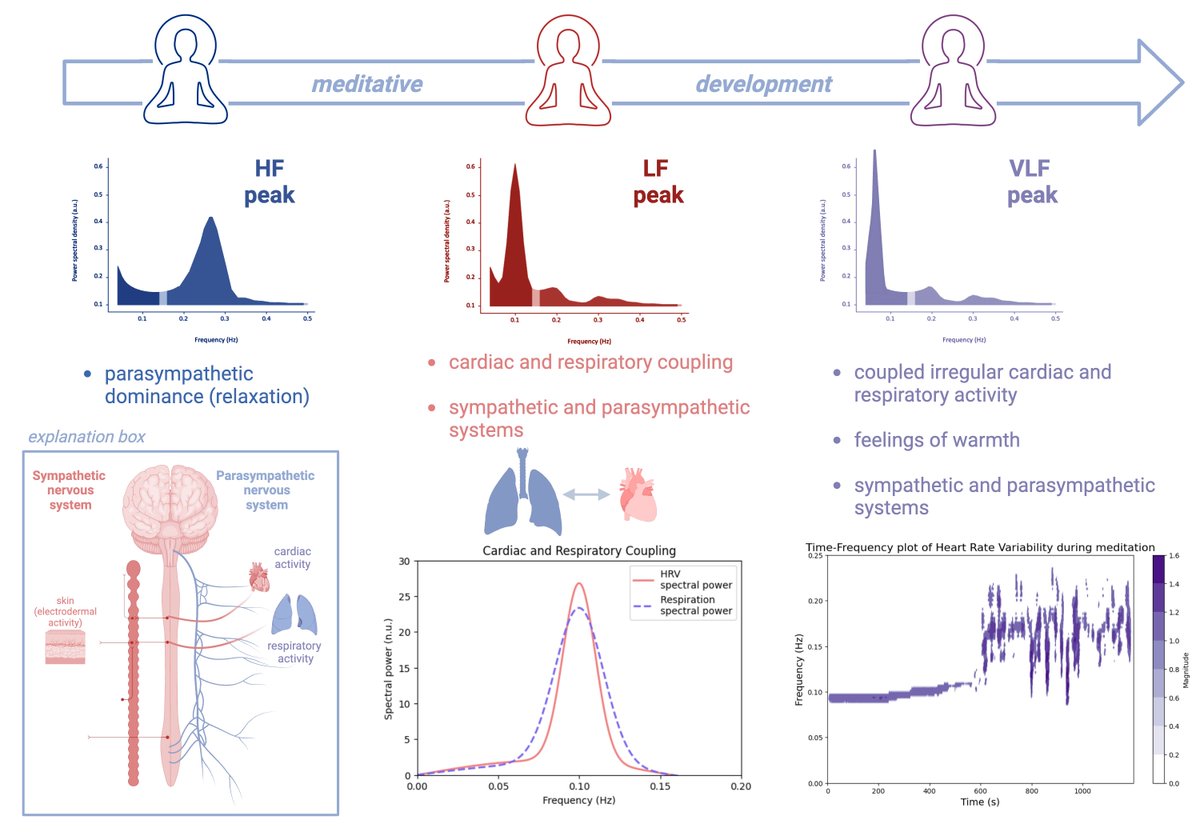
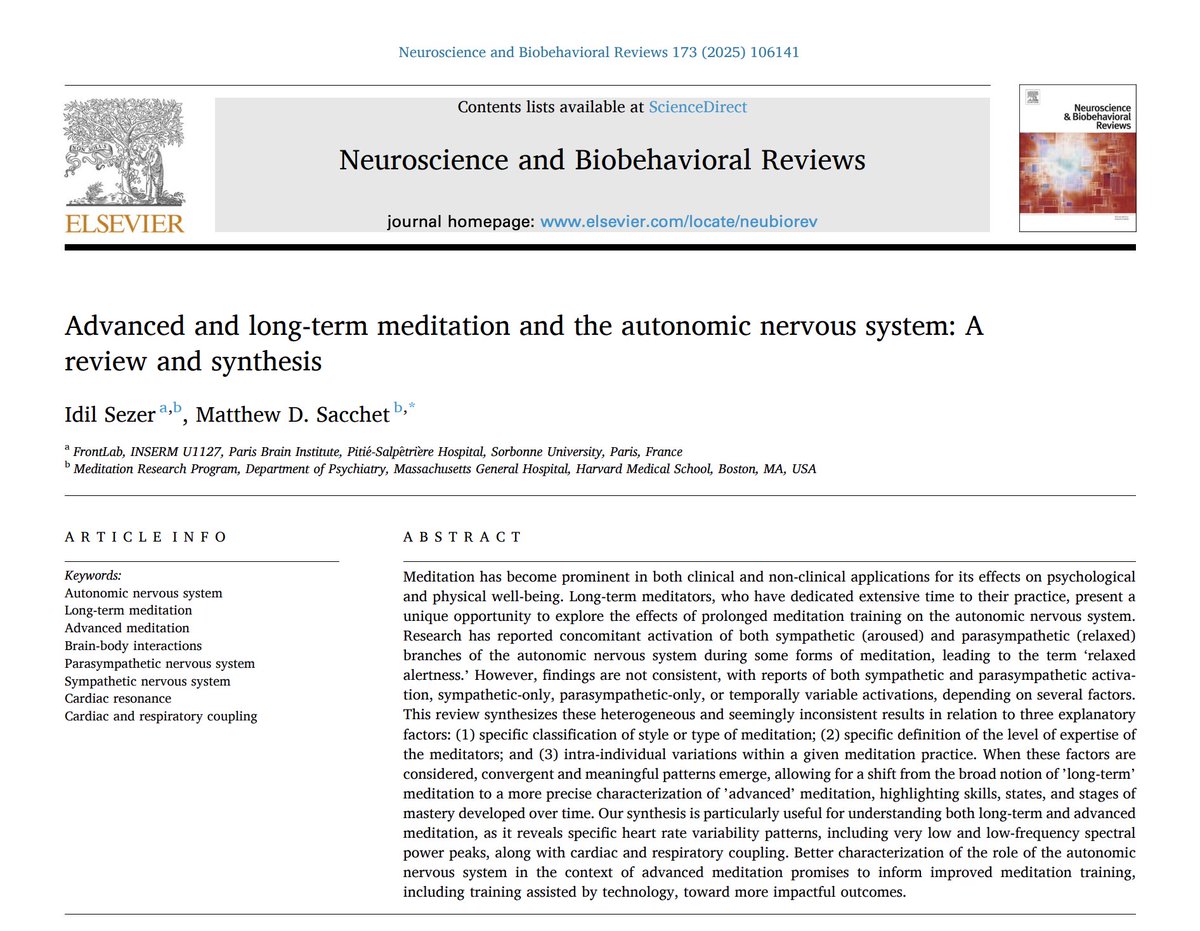
At our Meditation Research Program at Mass General @MassGeneralNews and Harvard Medical School @harvardmed , my team and I are on a mission to demystify and democratise advanced meditation and related altered states of consciousness—from mystical and ecstatic experiences to…
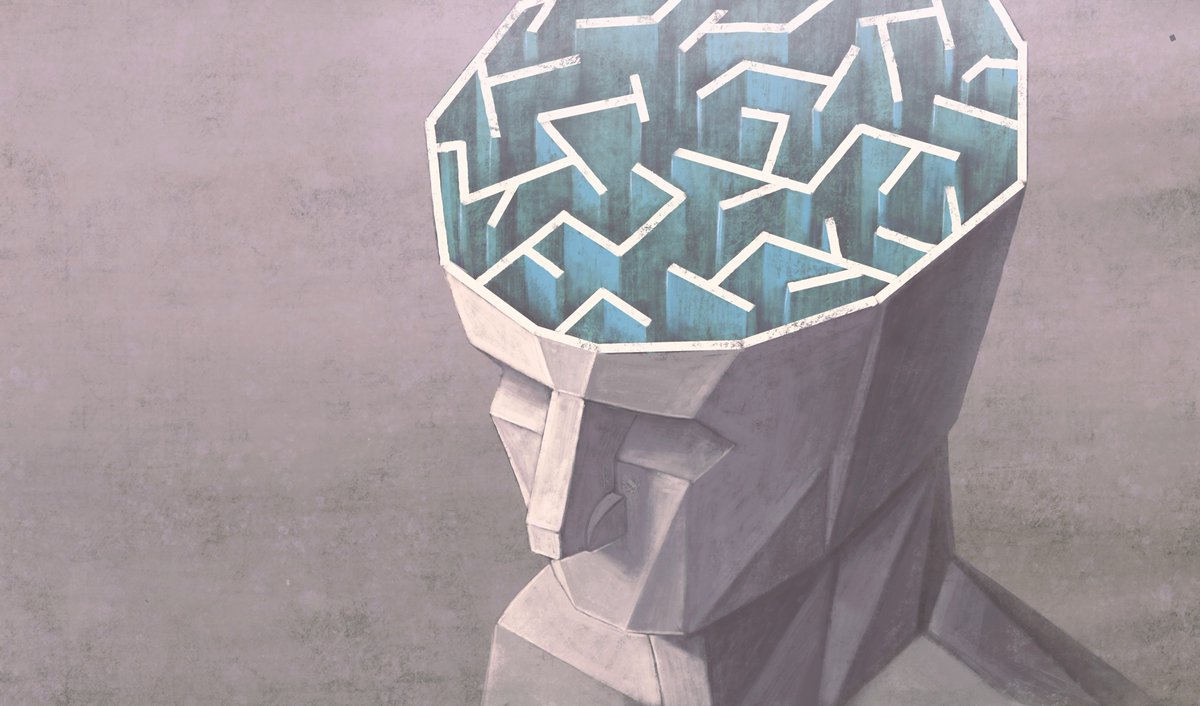
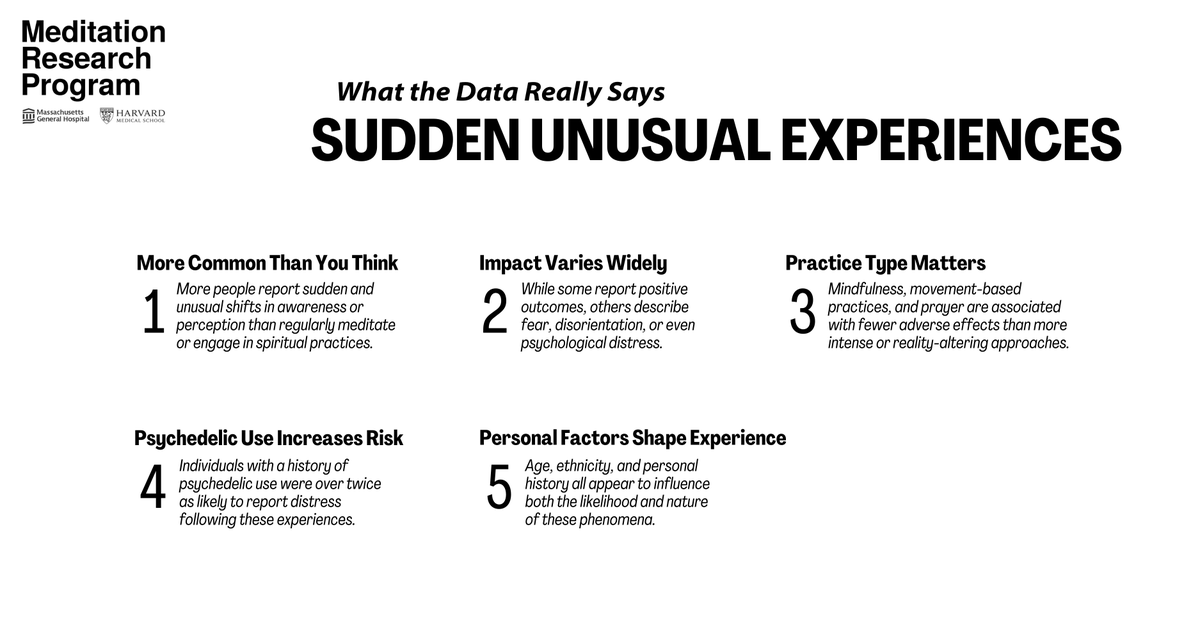
Have you ever used psychedelics and later had interesting, out-of-the-ordinary experiences like these? 🌙 Felt the world was dreamlike or cartoonish? 🌿 Experienced a deep sense of unity with life? 💫 Perceived something ordinary as exquisitely extraordinary, even for a moment?…
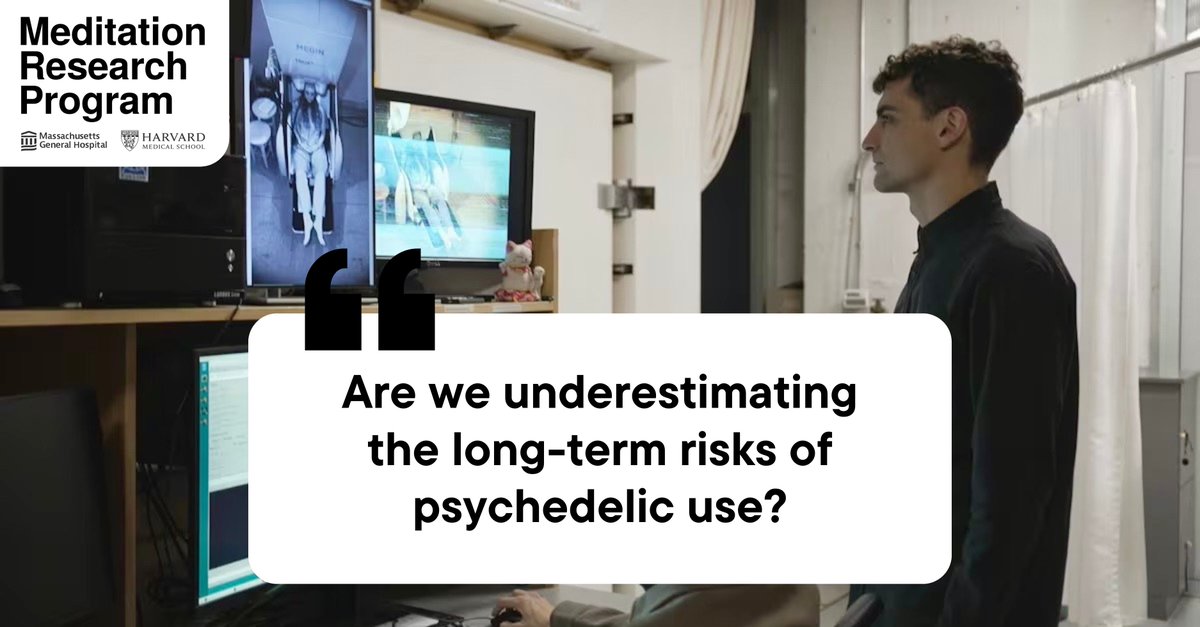
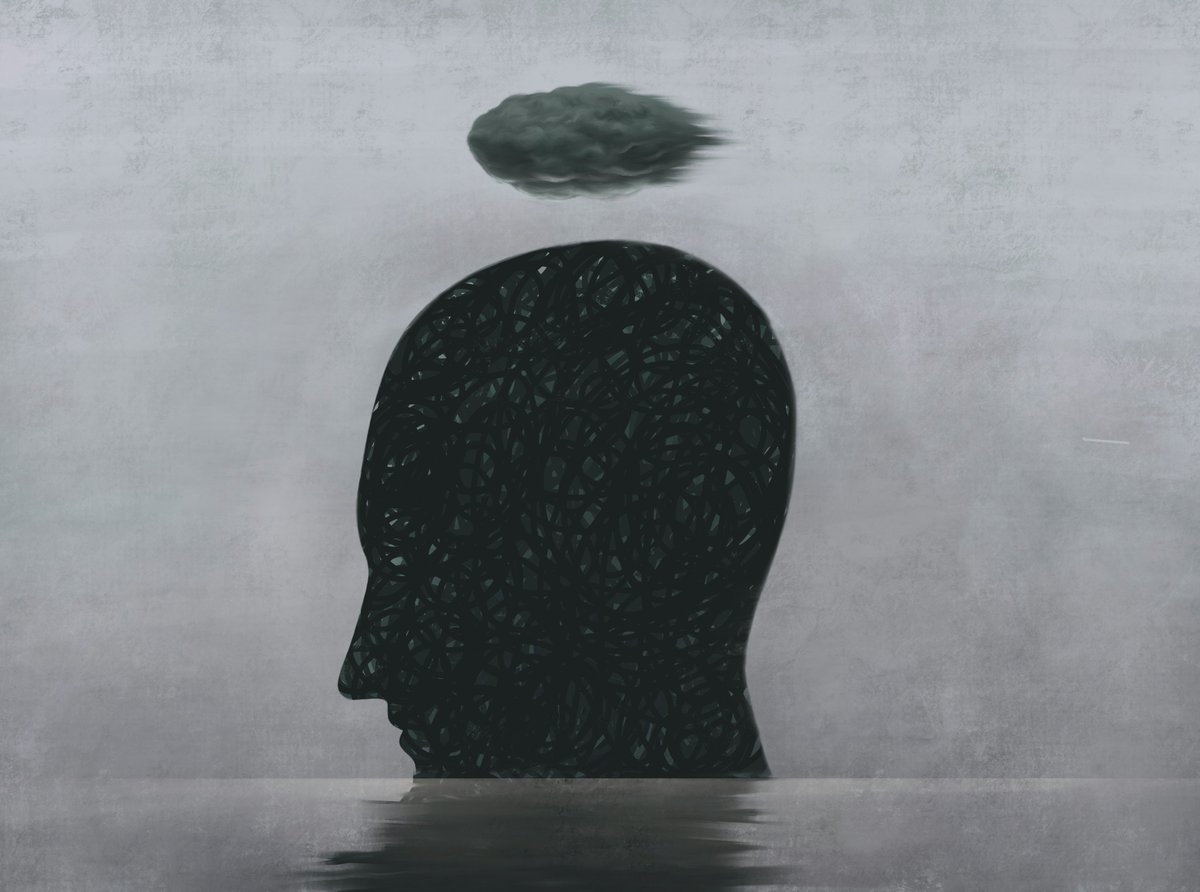
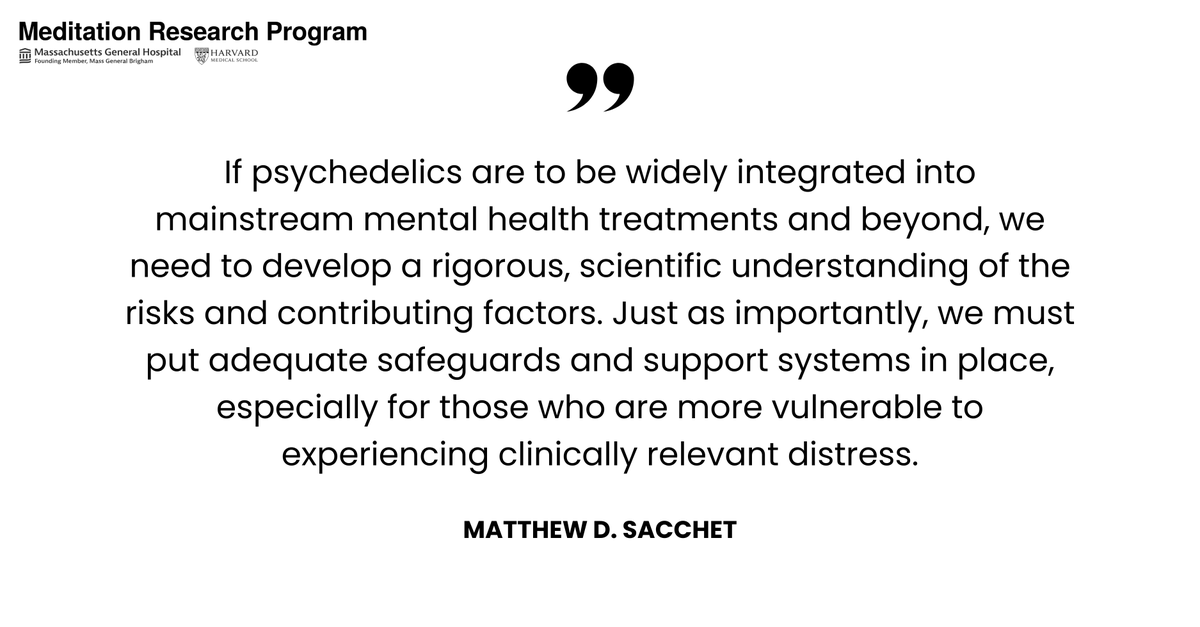
People sometimes have sudden, powerful experiences they describe as ‘spiritual, mystical, energetic, or magical.’ But did you know that almost half of the general population report having had such unusual experiences? These phenomena, also called altered states or emergent…

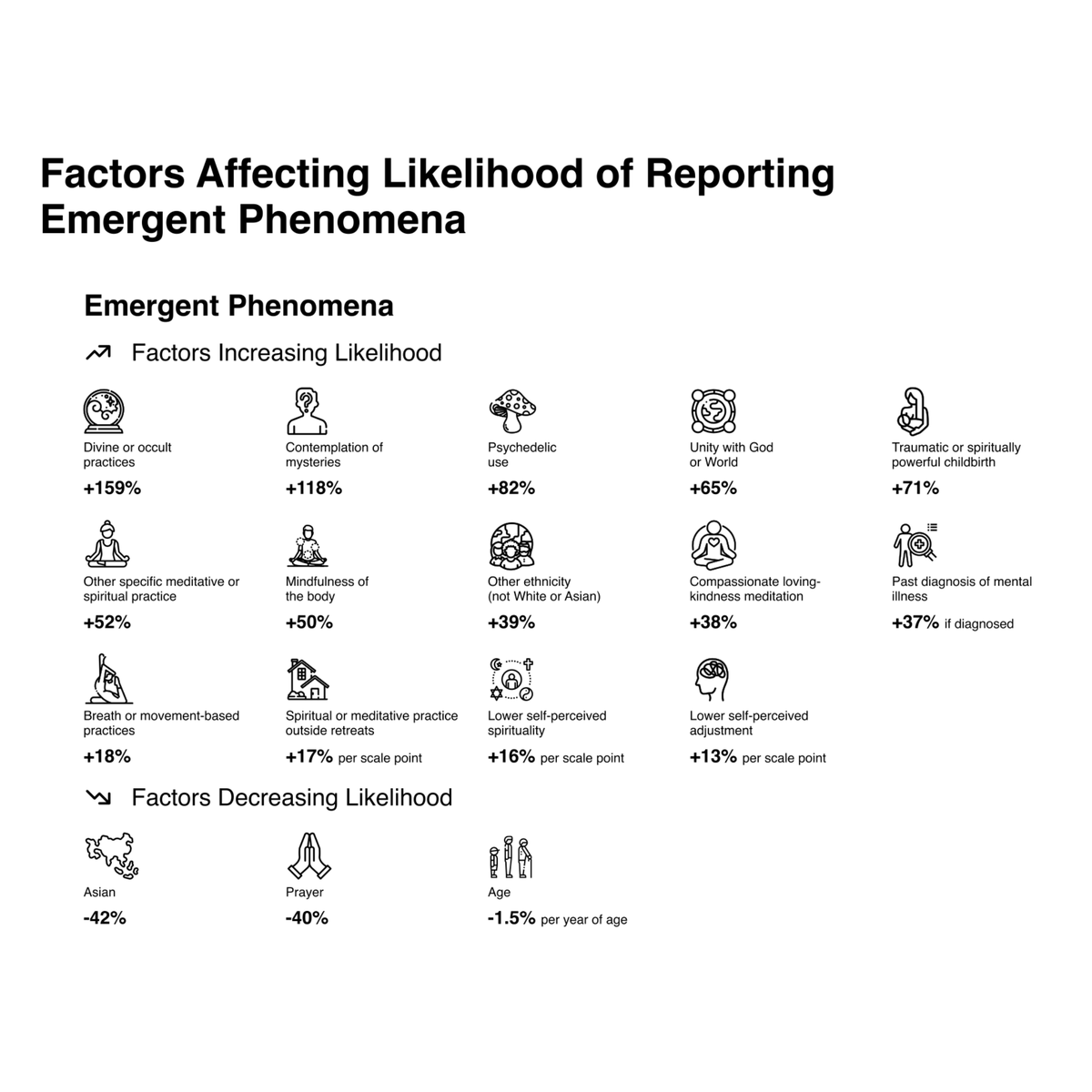
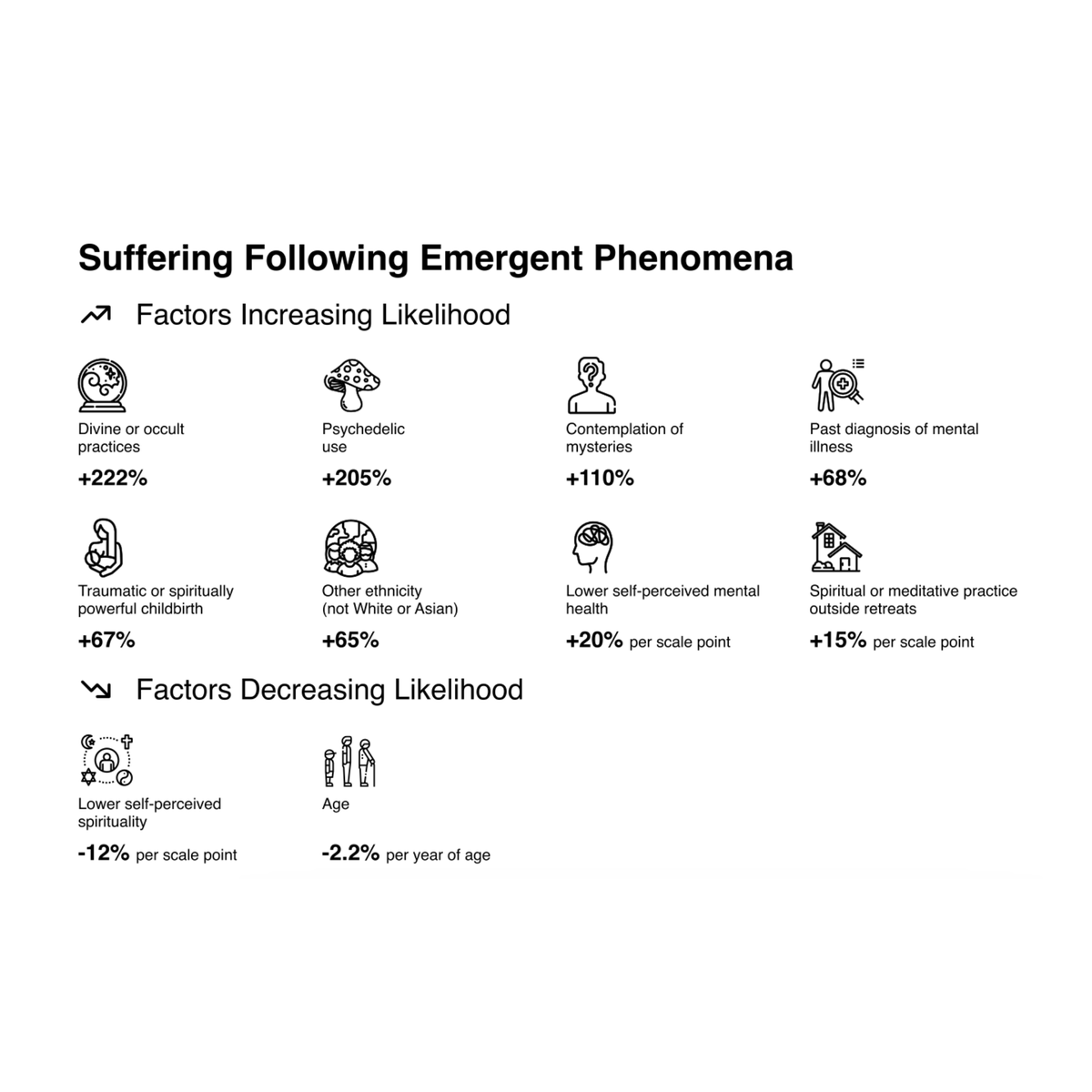
Announcing our new paper investigating brain connectivity in absorption meditation, now published in Cerebral Cortex, titled: Advanced concentrative absorption meditation reorganizes functional connectivity gradients of the brain: 7T MRI and phenomenology case study of jhana…

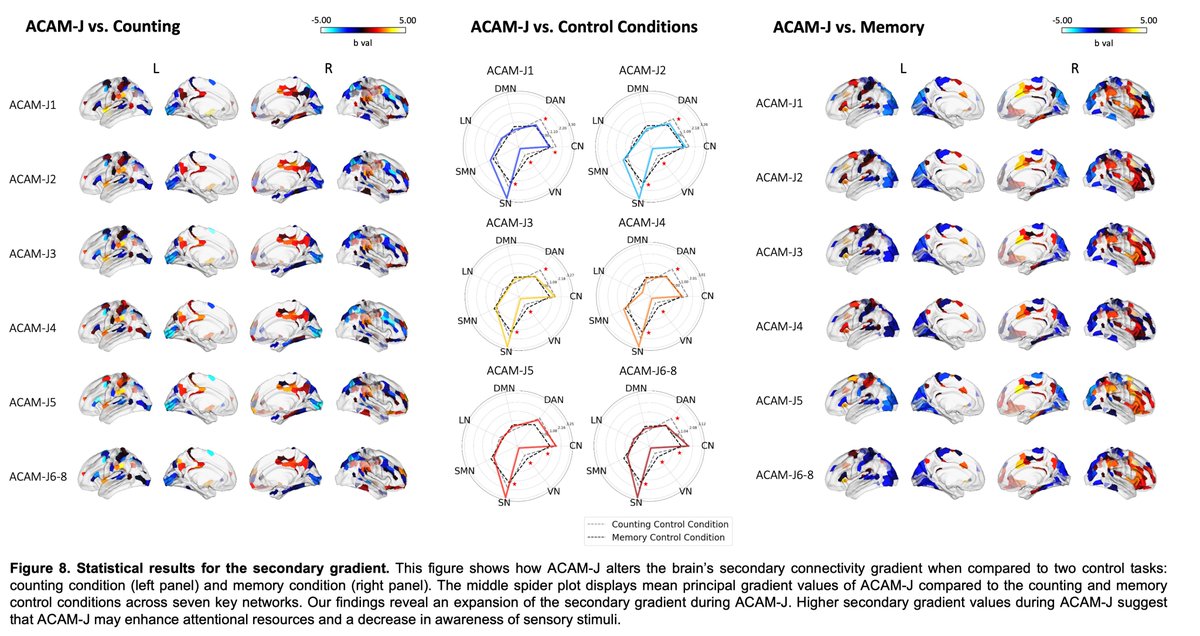
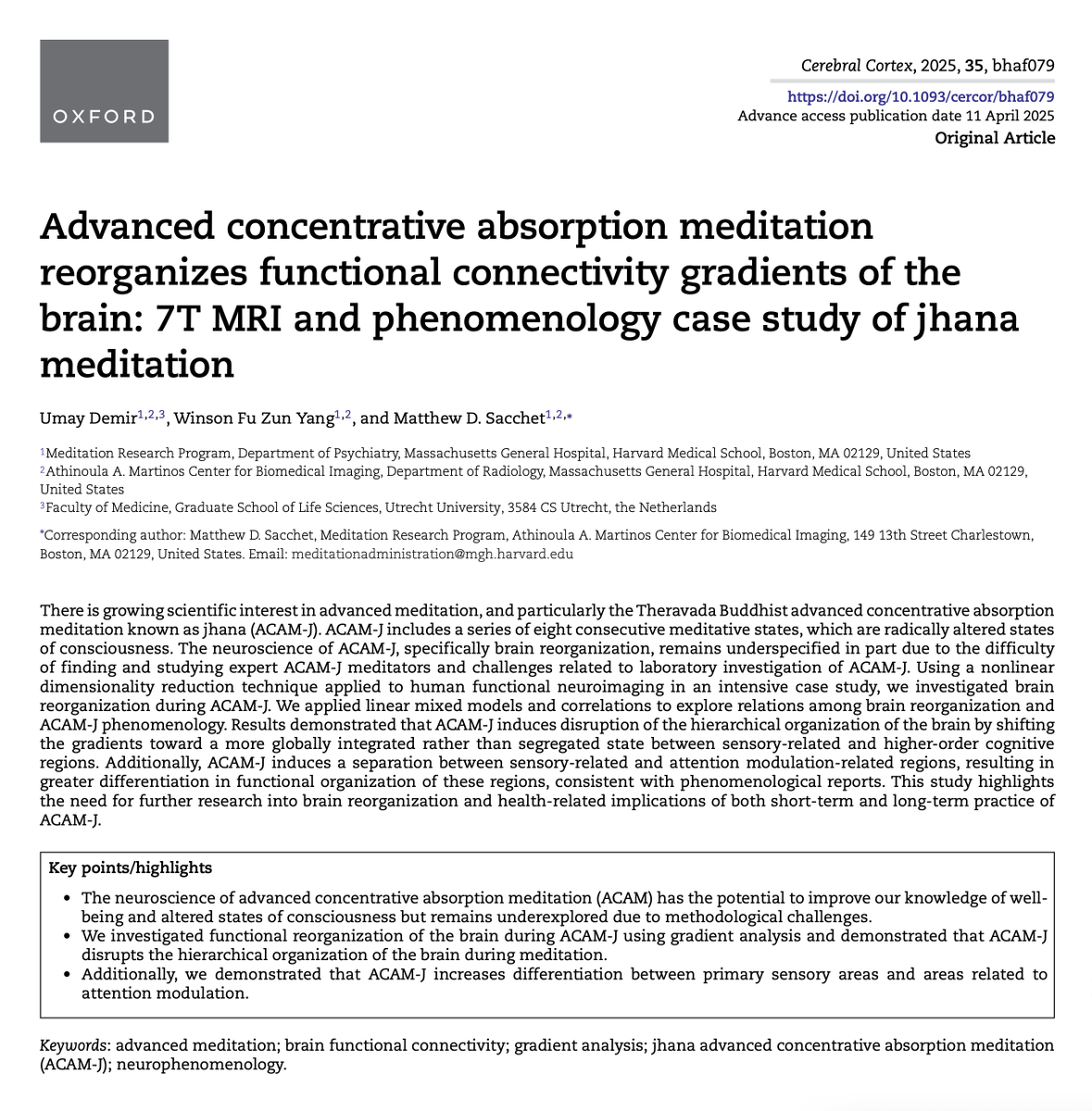
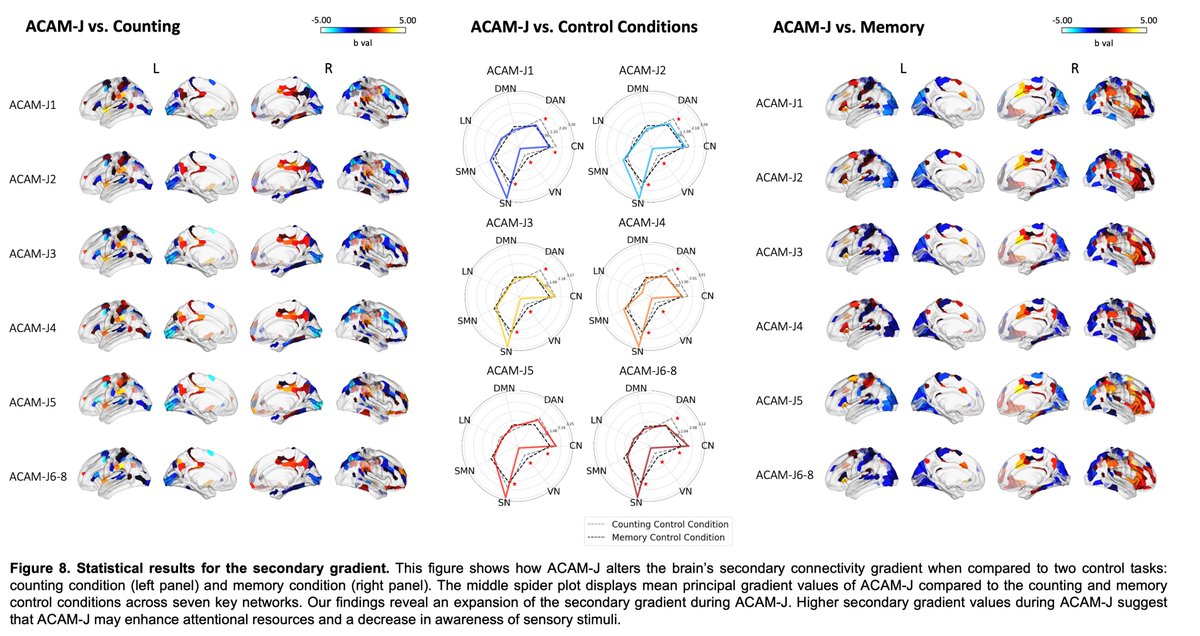
Announcing our new study of dynamics of natural brain modes and relations to phenomenology during jhana advanced meditation Delighted to share our new paper in Cerebral Cortex entitled: “Investigating the complex cortical dynamics of an advanced concentrative absorption…
